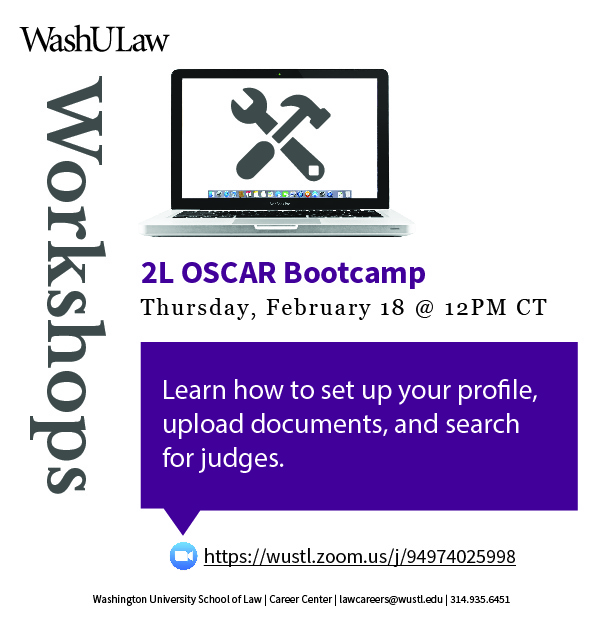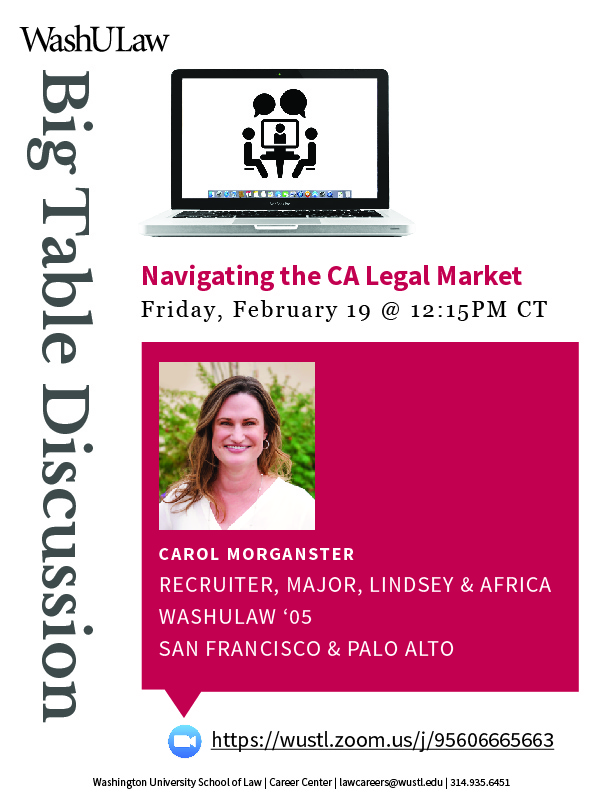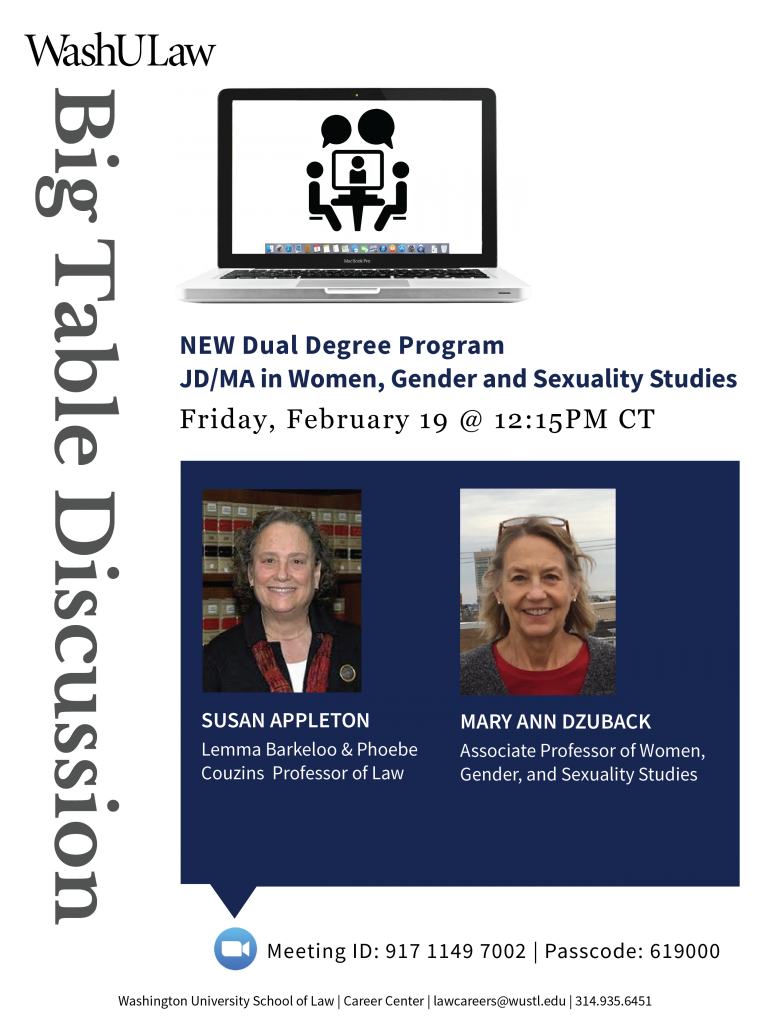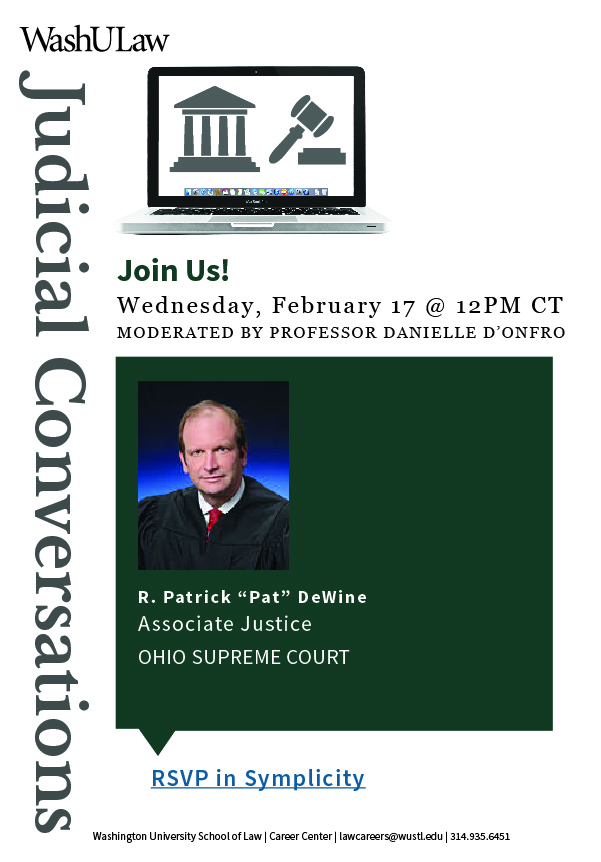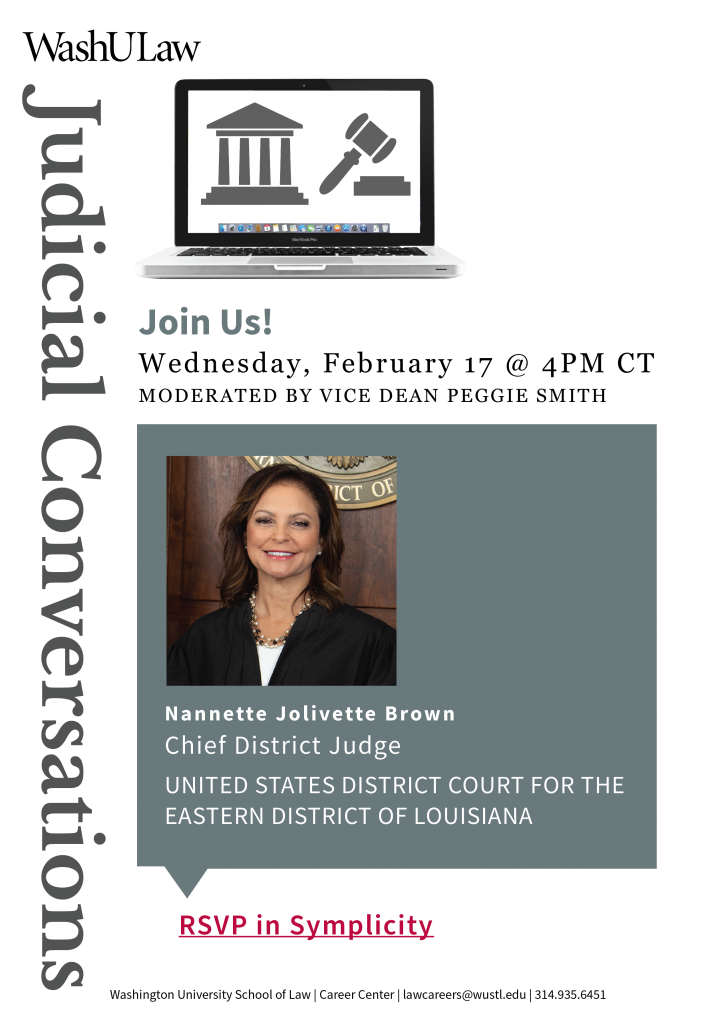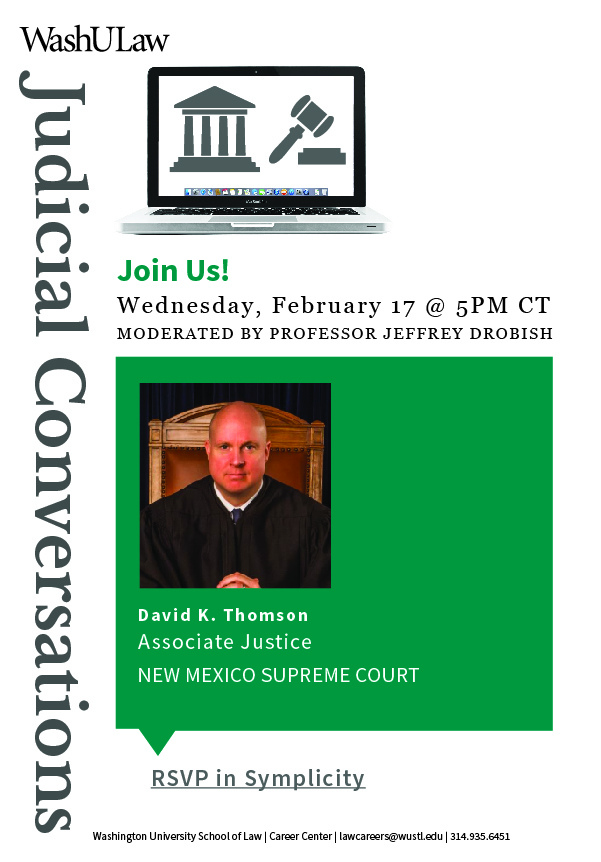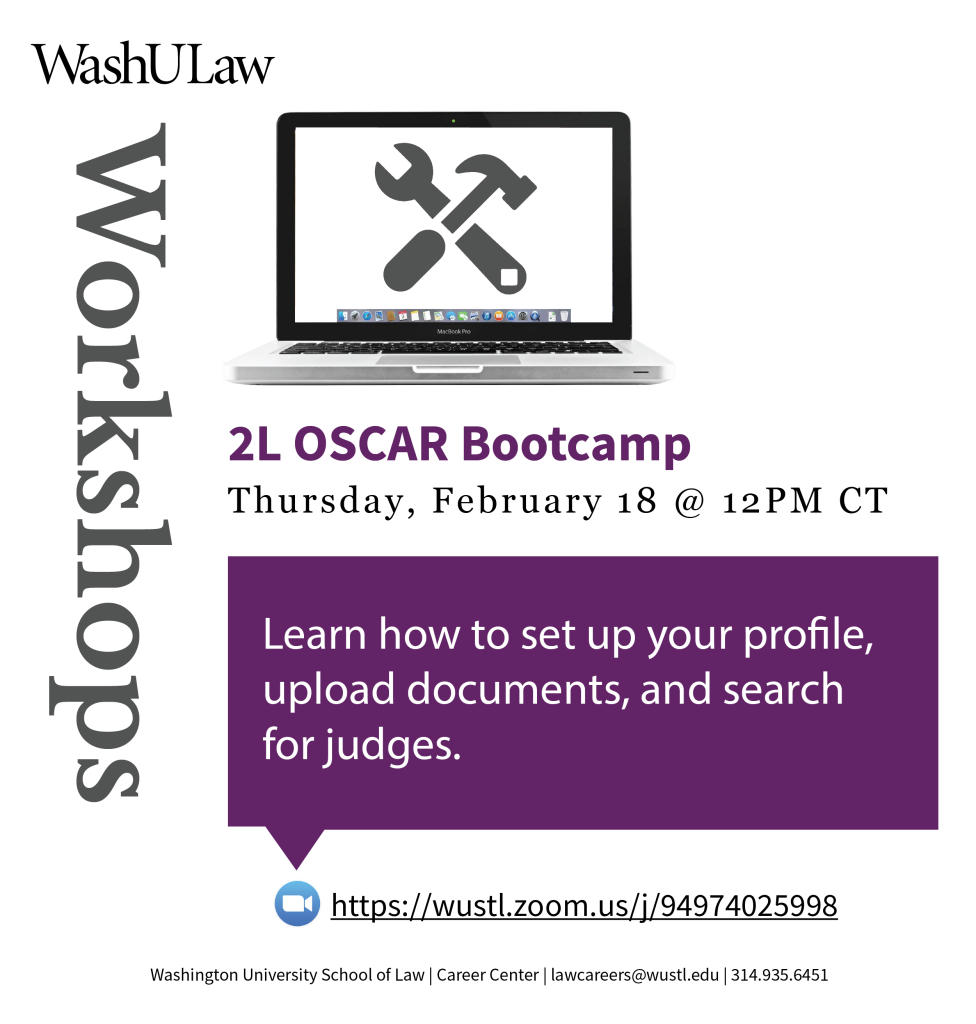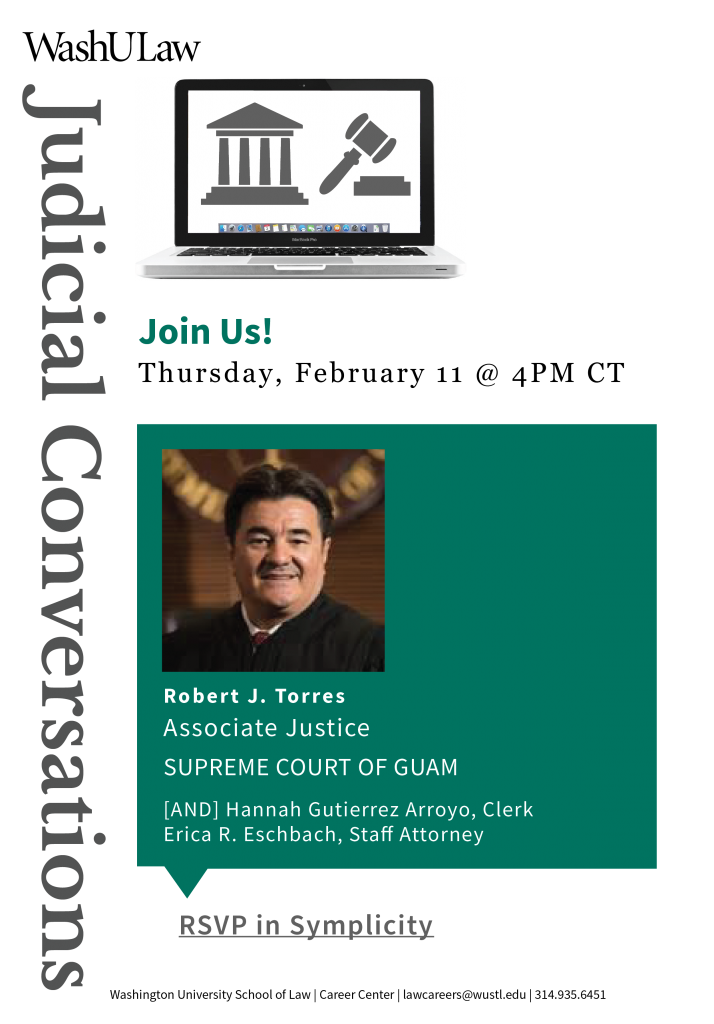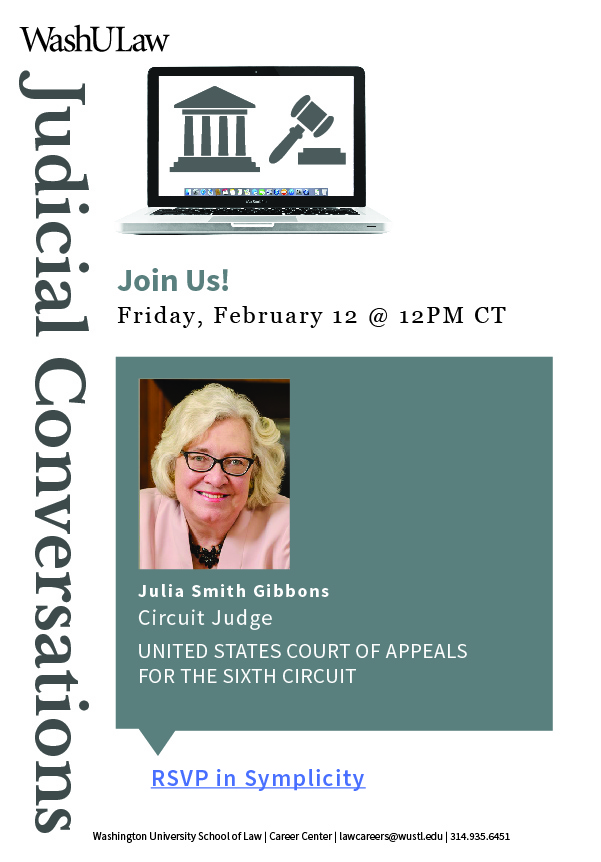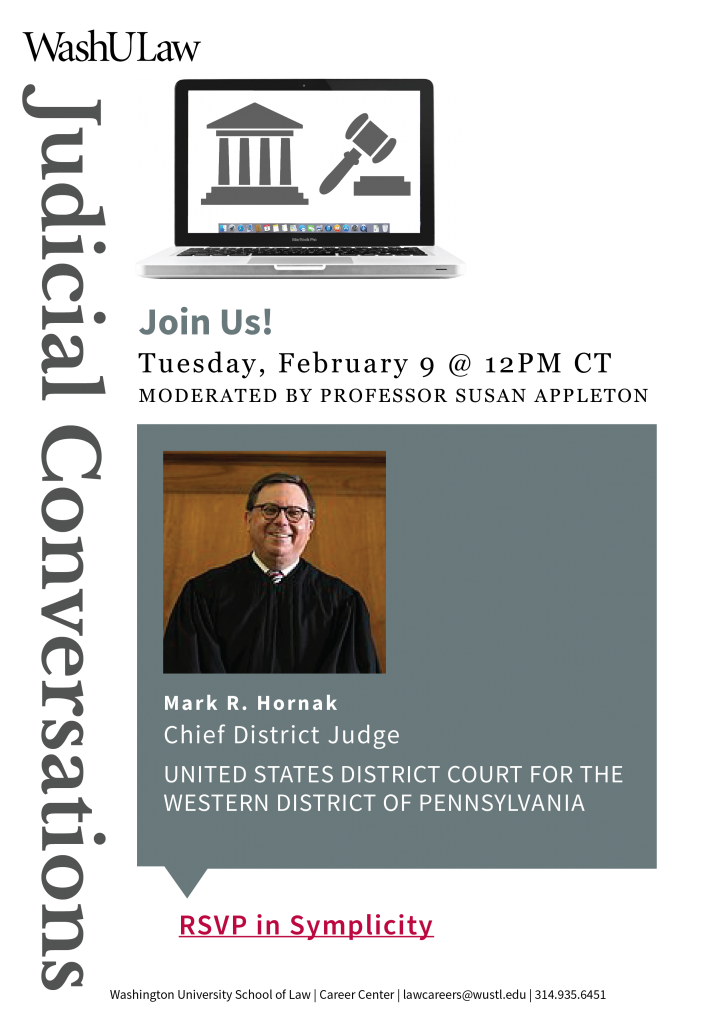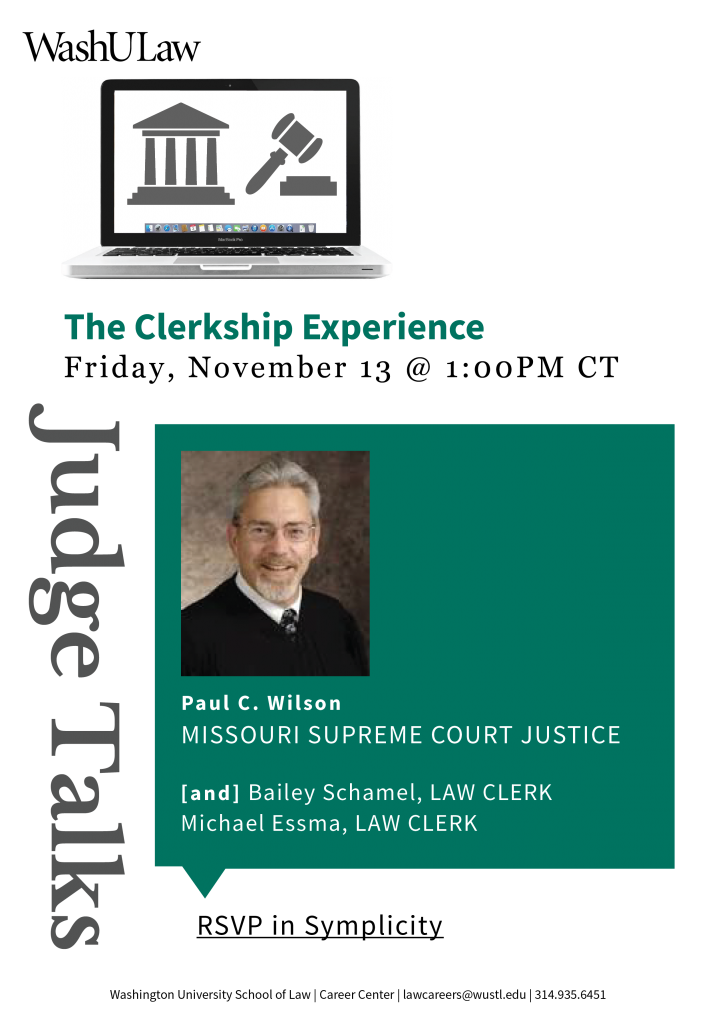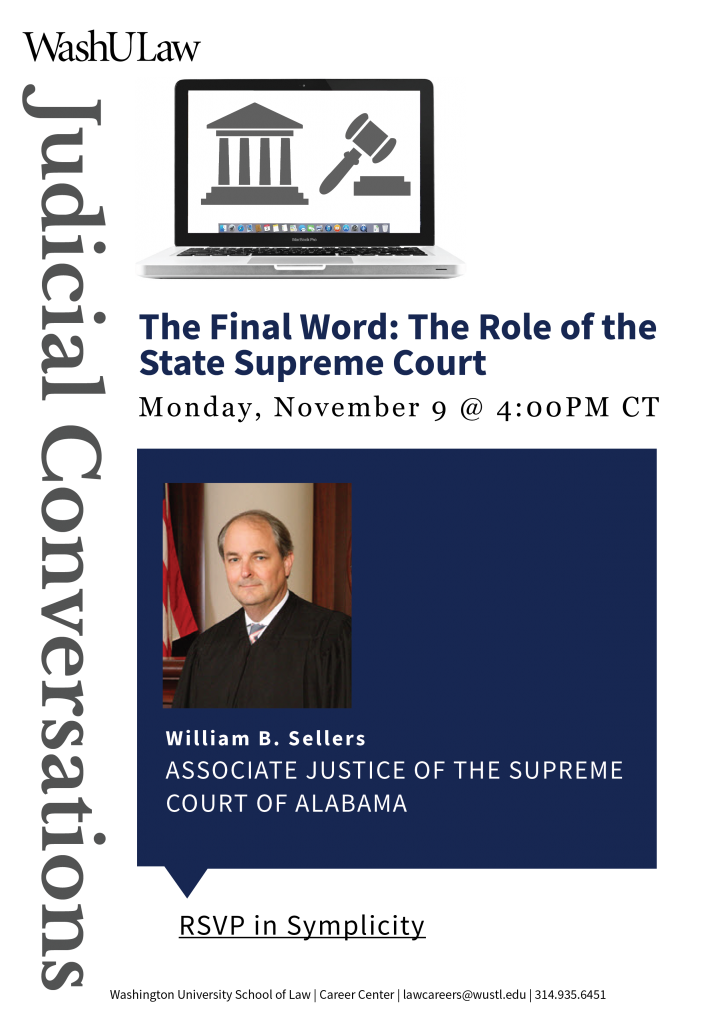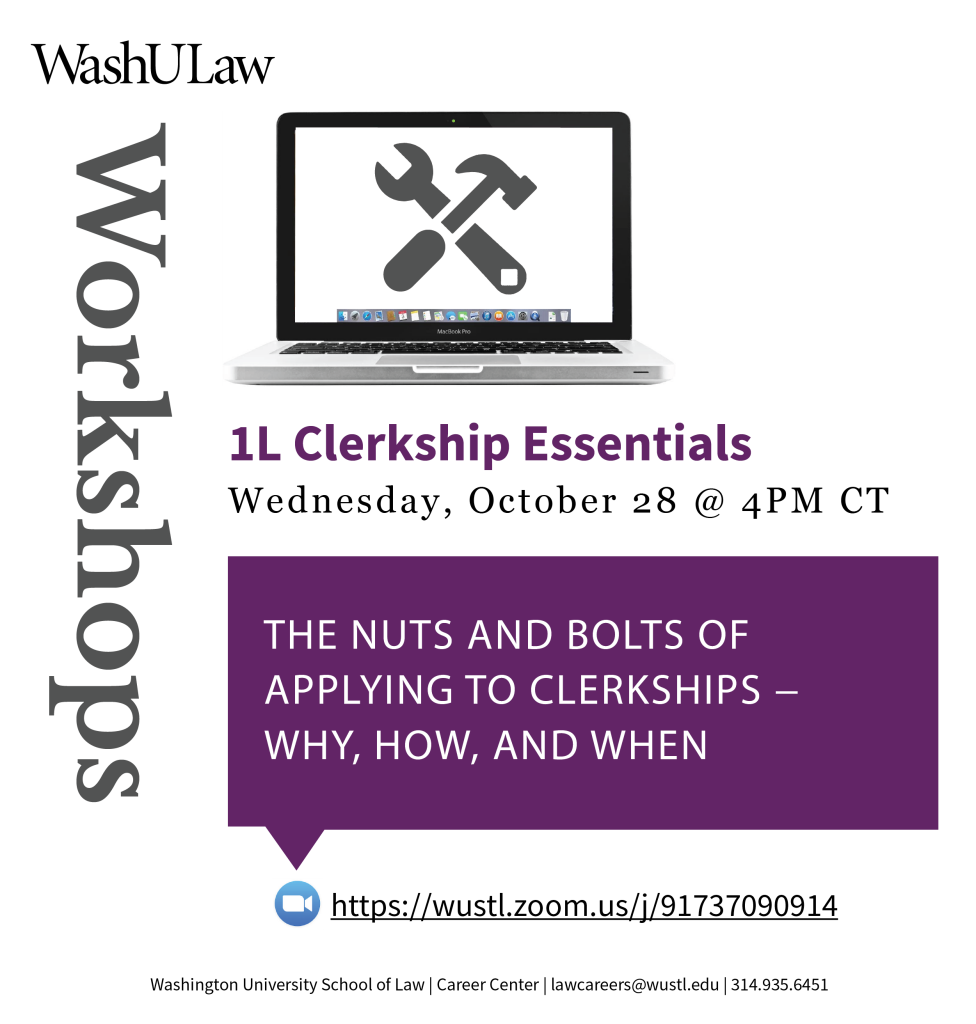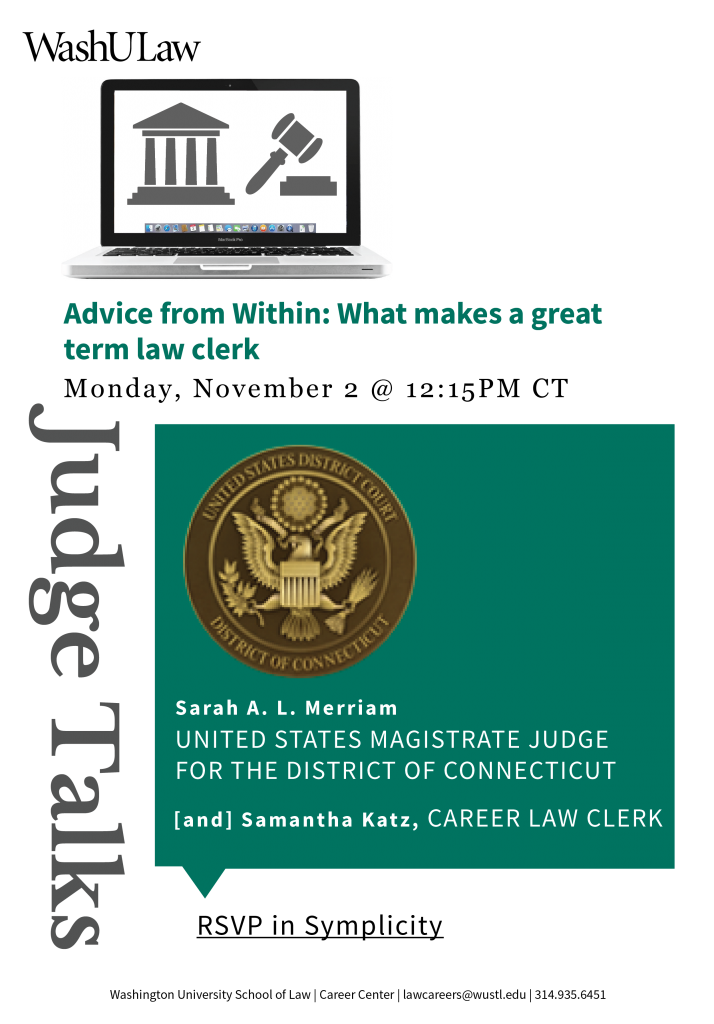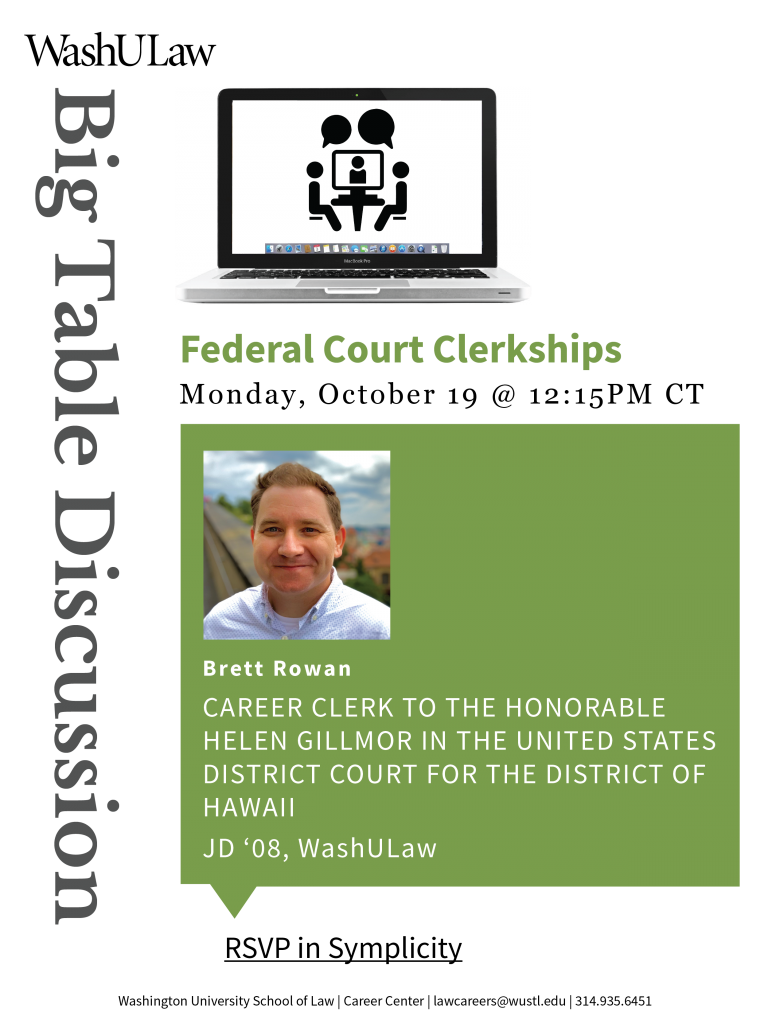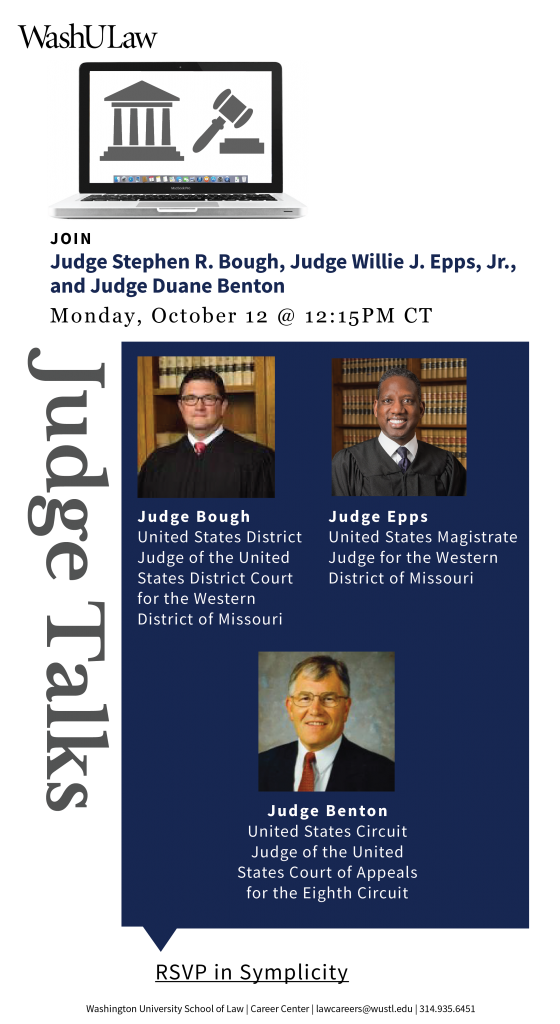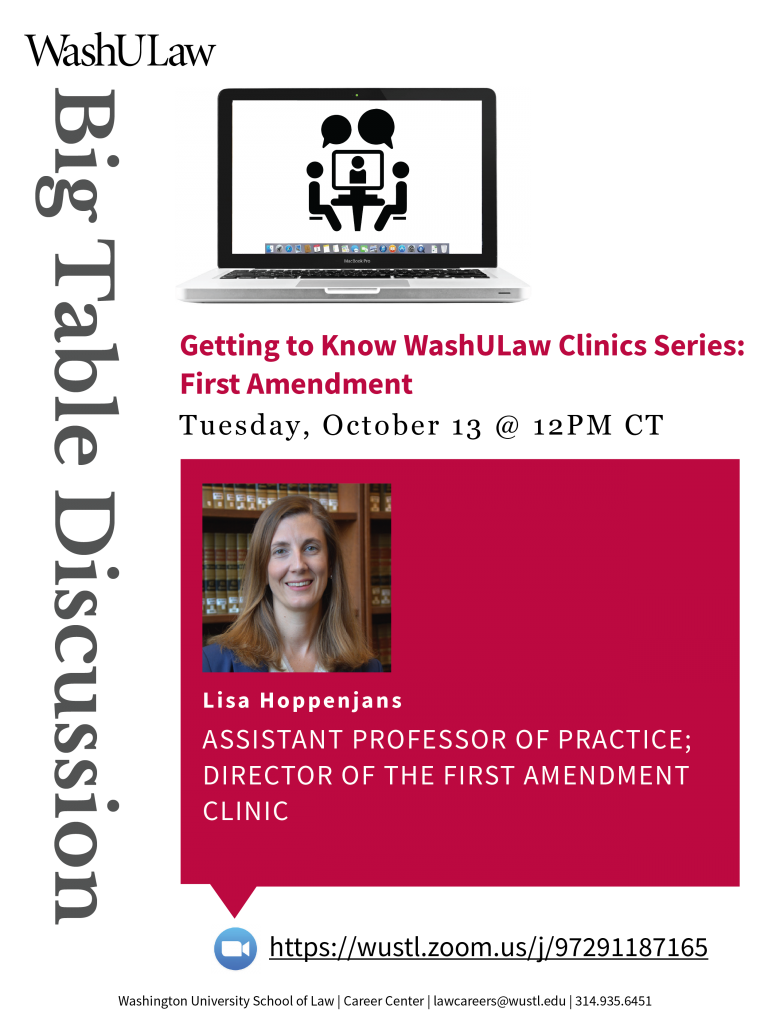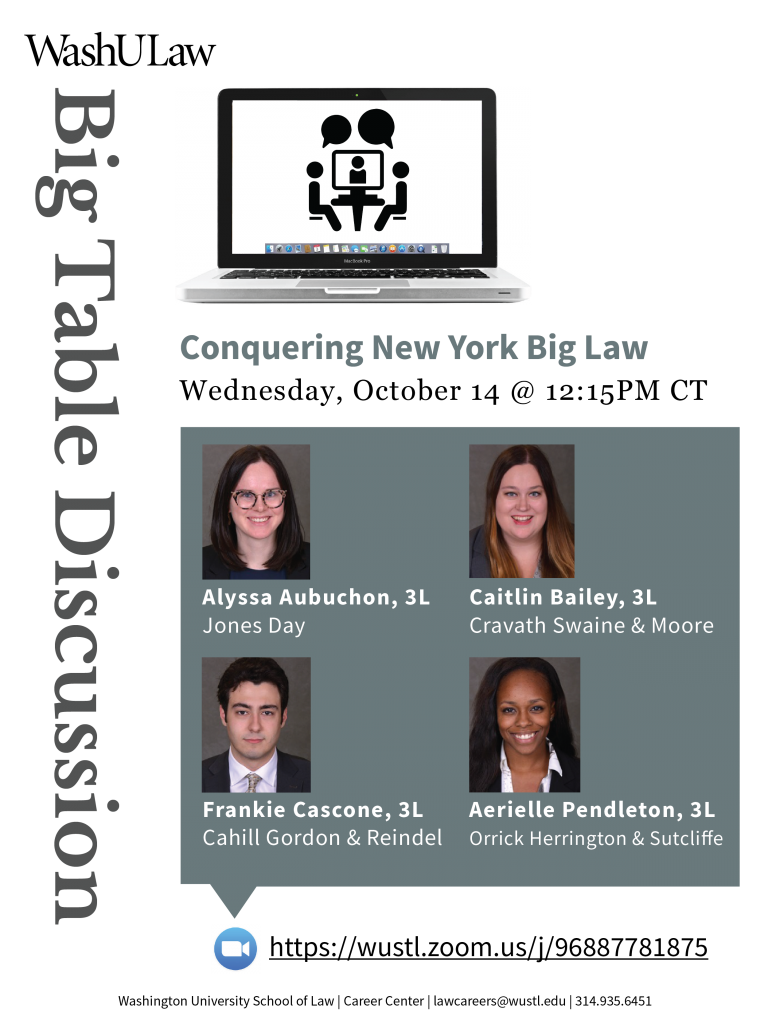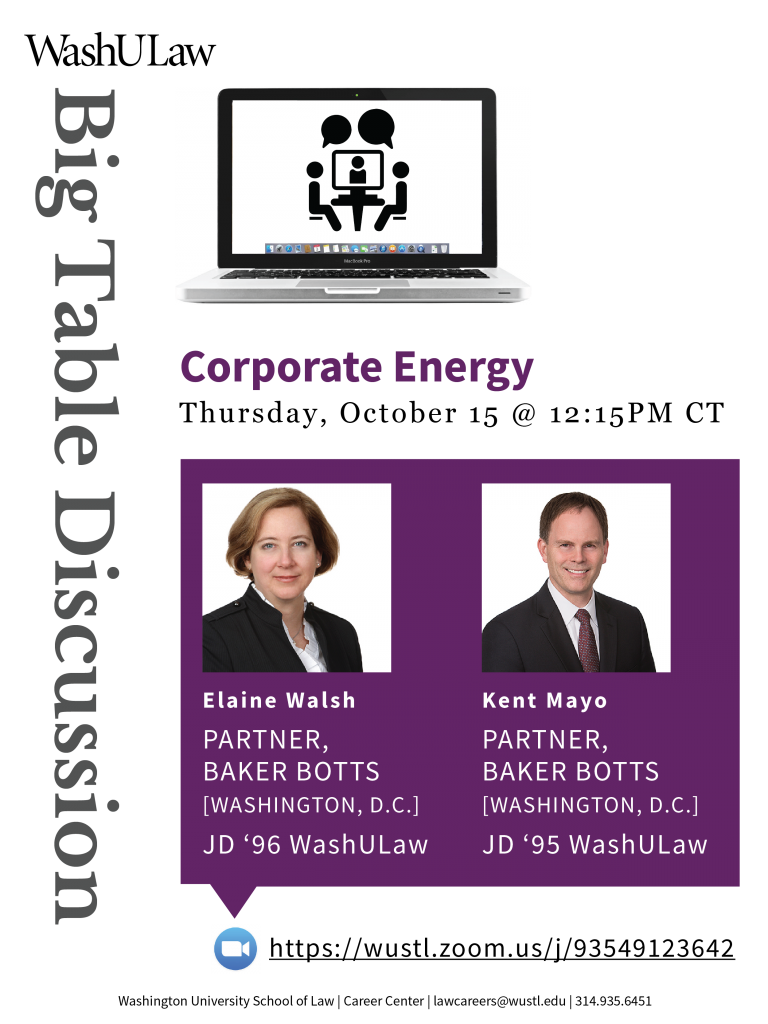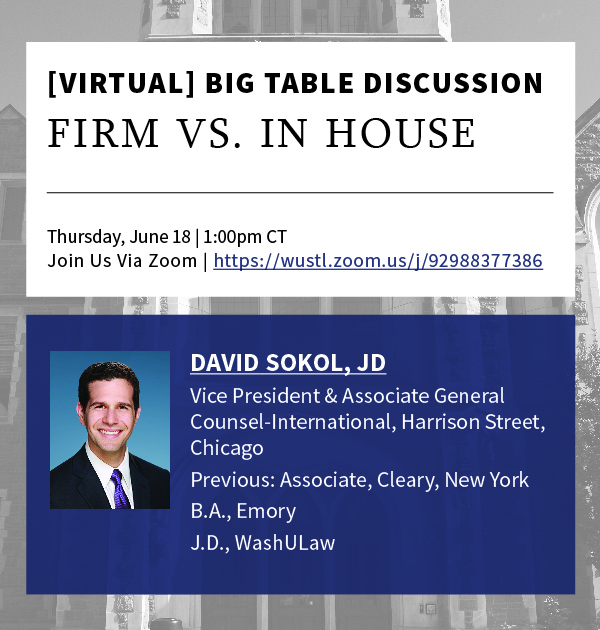2L OSCAR Bootcamp & Big Table Discussions This Week | 2.18 & 2.19
Judicial Conversations: Next Week’s Preview!
There are many Judicial Conversations taking place next week. This is just a preview. Mark your calendars and plan to attend. RSVP in Symplicity!
Wednesday, February 17th
12:00 pm CT on the 17th
4:00 pm CT on the 17th
5:00 pm CT on the 17th
2L OSCAR Bootcamp Next Week | 2.18
Judicial Conversations This Week | 2.11 & 2.12
Judicial Conversations are in full swing and have benefited students from all classes. Be sure to sign up for upcoming events in Symplicity!
Thursday, February 11th
Friday, February 12th
Judicial Conversations Preview: 2.9, 2.11, & More!
Judicial Appreciation Month (and beyond!) continues next week with several esteemed judges from across the nation. RSVP in Symplicity to participate!
Tuesday, February 9th
Thursday, February 11th
Friday, February 12th
Judicial Conversations This Week
Judicial Appreciation Month started strong this week and continues to highlight judges from across the country. There are many opportunities for you to participate this week and beyond. RSVP in Symplicity.
Wednesday, February 3rd
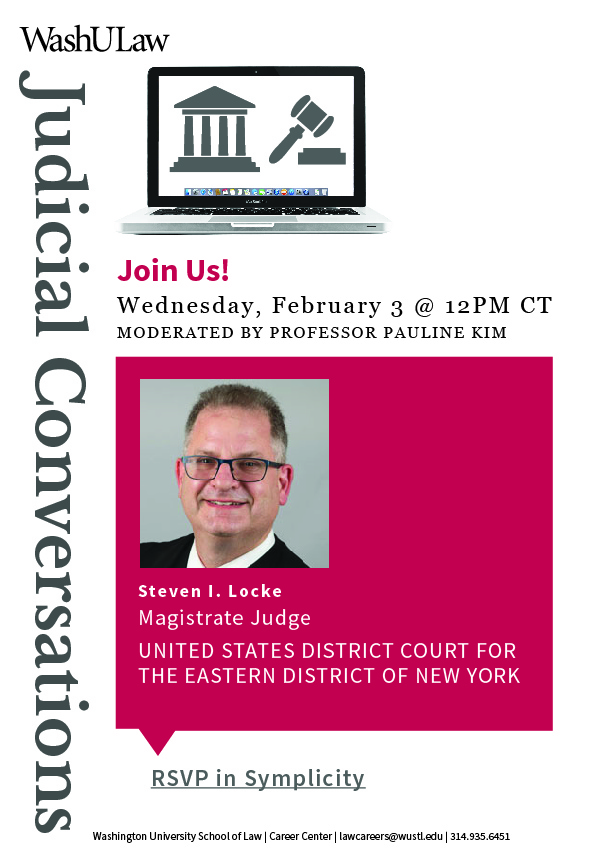
Thursday, February 4th
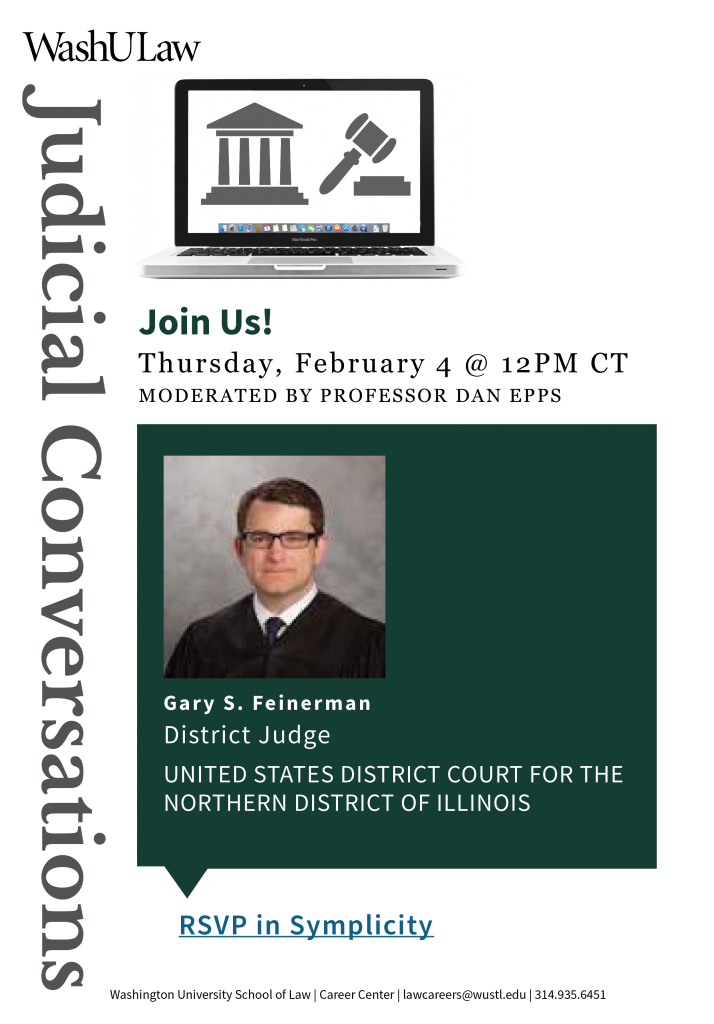
Friday, February 5th
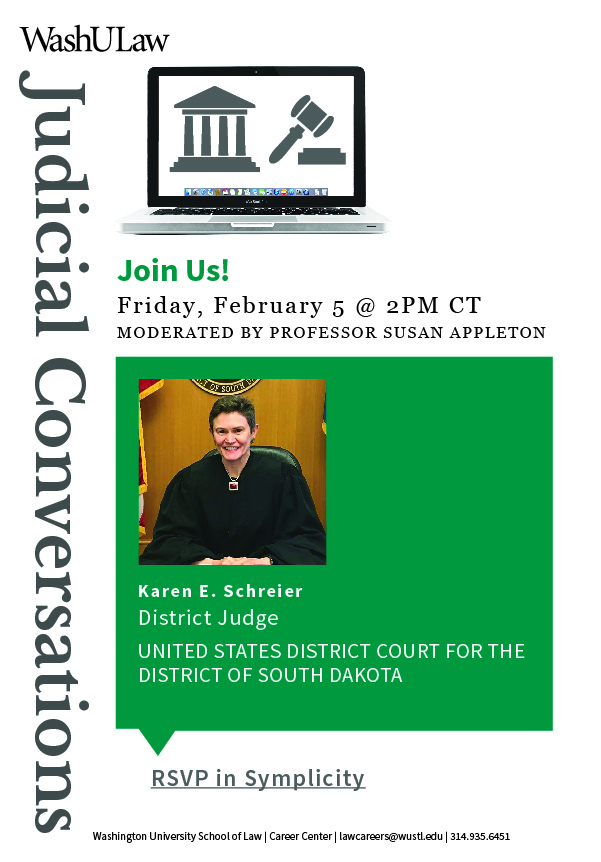
1L Clerkship Program with Twin Cities Diversity Now Open
Are you a law student of color looking ahead to Summer 2021? Add the 1L Clerkship Program at Twin Cities Diversity in Practice to your list of prospects.
Programming and benefits:
- Exposure to Leadership: Throughout the summer, TCDIP Clerks have multiple opportunities to engage with senior leadership from across TCDIP. Our Board of Directors, Emerging Leaders Group, and Members all devote time to getting to know Clerks and sharing more about the Twin Cities legal community.
- Professional Development: Clerks participate in professional development programs focused on developing authentic relationship-building skills.
- Meaningful Mentorship: Each Clerk is paired with an attorney outside the 1L Clerk’s employer in order to help them expand their networks and learn more about our legal community.
- Connections to Alumni: At the beginning of the summer, Clerks connect with program alumni who share their tips and tricks for building a successful summer experience.
Want to learn more?
- Take a look at available postings today.
- View the last recorded informational session, and
- Sign up for the next informational session on January 6.
Judicial Conversations: Justice Lloyd Karmeier with Clerk David Sanders | 11.16

November 16th
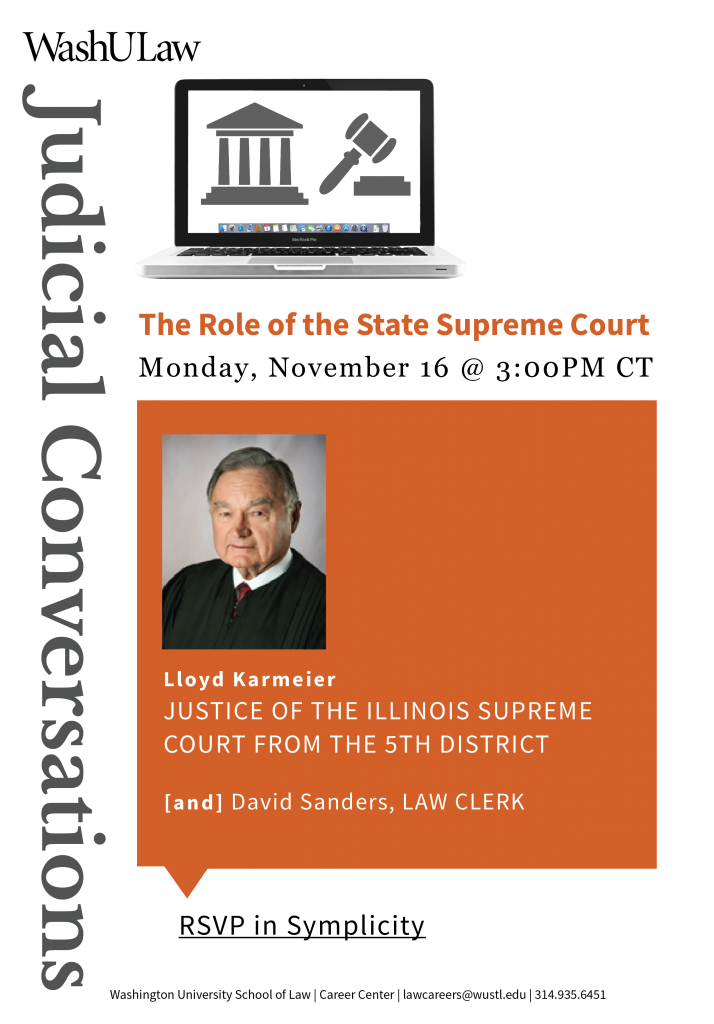
Judge Talks: The Clerkship Experience | 11.13
Judicial Conversations | The Final Word: The Role of the State Supreme Court | 11.9
Advice from Within: What Makes a Great Term Law Clerk? | 11.2
1L Clerkship Essentials | 10.28
Advice from Within: What Makes a Great Term Clerk | 11.2
Advice from Within: What Makes a Great Term Law Clerk? | 11.2

November 2nd
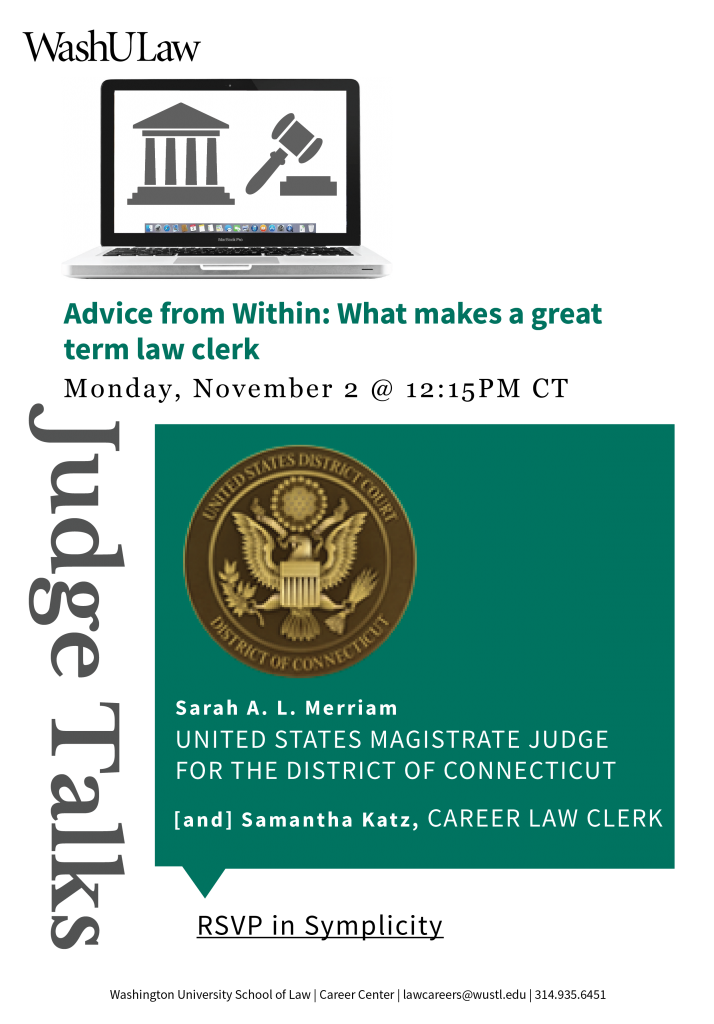
Federal Court Clerkships | 10.19
The Importance of Clerking w/ Judge Bough, Judge Epps, and Judge Benton | 10.12
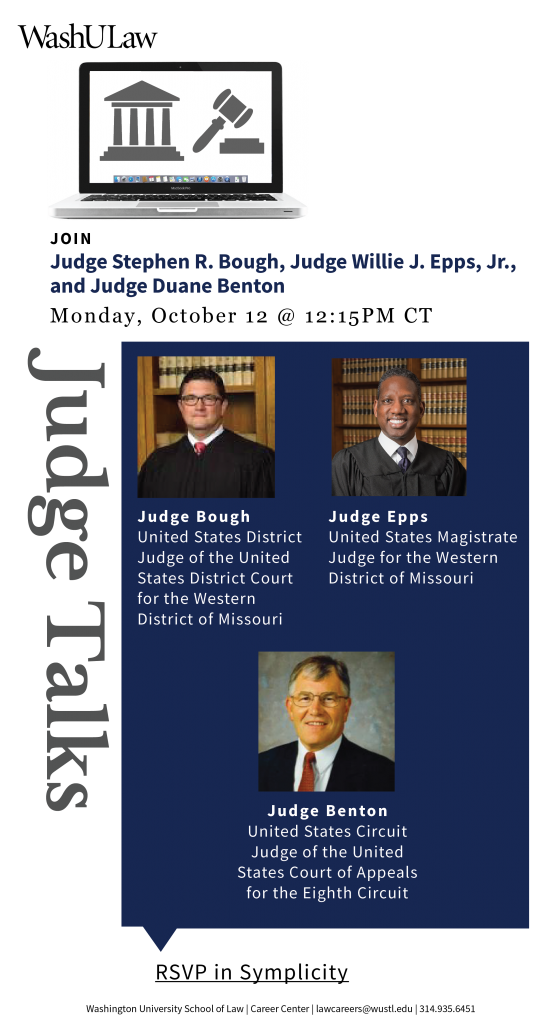
RSVP is required to receive a Zoom link.
This event will not be recorded.
How to RSVP in Symplicity.
Big Table Discussions | 10.12-10.15
PEER CAREER ADVISOR MEETUPS | 10.16
Next Friday you have two different ways to meet with Peer Career Advisors. RSVP in Symplicity!
FRIDAY, OCTOBER 16: IN-PERSON & VIRTUAL
- Event: In-Person Meetup (Mudd Field)
- Time: 1pm-2pm CT
- Topic: Clerkships!
- RSVP: in Symplicity
- Event: Virtual Meetup
- Time: 1pm-2pm CT
- Topic: Interviewing for Government & Big Law
- RSVP: in Symplicity
Clerkship Openings | Weekend Edition

Clerkships are an excellent way to grow your legal skills and launch into other areas (if you so choose). Check out these 6 current openings!
1.) Wisconsin State Supreme Court
2.) Judge Richard Nygaard | 3rd Circuit COA, Eerie, PA | 1 Year Term starting 8.30.21 | Apply on Oscar or by Paper
4.) Judge Ann M. Nevins | US Bankruptcy Ct, District of CT, Hartford, CT | 1 Year Term starting 9.1.21 | Apply on Oscar
5.) Judge Frank Bailey | US Bankruptcy Ct, 1st Circuit, Boston, MA | 2 Year Term starting 9.1.21 | Apply on Oscar
6.) Tennessee Circuit Court-Judge Thomas Brothers (Nashville, TN)
Two-year judicial clerkship beginning in late August 2021. Your materials must be received no later than January 15, 2021. Submit cover letter, resume, unofficial transcript, writing sample, and reference list to:
Hon. Thomas W. Brothers
1 Public Square, Suite 404
Nashville, TN 37201-5099
Or email: LoriYHawkins@jisnashville.gov
Pro tip: Email your materials to jcrecommendations@wulaw.wustl.edu, and we will package with your letters of recommendation and send one application on your behalf.
TOP 10 Reasons to be a U.S. Bankruptcy Court Clerk/ Extern/Intern By the National Conference of Bankruptcy Judges
Please note this content was written by the National Conference of Bankruptcy Judges.
1.) One-on-One Time with a Federal Judge.
A knowledgeable, experienced and approachable U.S. bankruptcy court judge will spend individual time with you and provide you with insights that you will not be able to obtain anywhere else. What is better than that? And, by its very nature, bankruptcy matters proceed at a relatively faster pace than matters before other federal judges, so you are likely to be involved with litigation and mediation from inception to completion during your time with a bankruptcy judge.
2. Develop Skills for Networking Like a Pro.
Bankruptcy professionals are a tight-knit community and you will have unique opportunities in your clerkship to observe and interact with many insolvency lawyers, accountants, turnaround specialists, judges and other clerks both during and outside of court at seminars and conferences. These experiences will help you develop early networking skills as a new attorney.
3. You Will Never be Bored.
The cases you will work on will be both factually and legally interesting and will include large and small businesses trying to reorganize in a wide variety of industries, individuals trying to keep their houses and cars while seeking to discharge their debts, farmers trying to save their family farms, and even on occasion a foreign cross-border case or a municipality or other governmental entity insolvency case.
4. Become an Effective Advocate.
You will be able to observe numerous lawyers and their styles and learn to develop the most successful style for you in persuading judges to support your clients’ positions and requests for relief.
5. Acquire a Specialized Skill Set.
You will see how bankruptcy law is applied and interpreted in depth. Bankruptcy law and procedure is a unique and marketable area of expertise. Unlike other types of code-based law, bankruptcy cases often turn on unique facts that can change the legal analysis making a broad exposure to many 1 Did you know that the word “bankruptcy” is a derivation of the Italian words “banca rotta” which translates in English roughly to “broken bench?” Reportedly, when a Genoan money lender became insolvent the locals broke his work bench. cases invaluable. Especially in times of economic downturns, your particularized knowledge will be in demand!
6. Your Research and Writing Skills Will Soar.
You will learn research and writing skills ranging from quick assessments for court calendar notes, to memos assessing legal issues as well as draft memorandum opinions on unique issues.
7. Rule the Rules.
If you plan to practice in court, you need to know the rules. You will learn many of the applicable rules, including federal rules of bankruptcy procedure, civil procedure and evidence and local bankruptcy rules together with practical procedural tips, tools and forms. This will save you significant time and money (and potential embarrassment) in your future practice.
8. Bankruptcy Has Everything.
Contrary to popular belief, bankruptcy practitioners are the last generalists. Debtors face many issues involving nonbankruptcy law including contract and UCC disputes, family law, real estate, trusts and estates, taxes, intellectual property, regulatory and labor issues. Bankruptcy judges must address many of these issues which often affect debtors’ discharges or plans of reorganization.
9. Excellent Transition Position to Many Diverse Careers.
Being a clerk is a resume enhancer which can lead to many different types of government and private positions, the law clerk pay is competitive and there are no billable hours! Employers value your clerkship experience and often give credit for a clerkship in their pay scales.
10. If You Want to Be a Judge Someday….
Many current bankruptcy judges started their legal careers as externs or law clerks. How do you know unless you try it? Diversity in every aspect is important on the federal bench. Bankruptcy courts are looking for ways to increase diversity by their hiring practices for externs and law clerks. Come one, come all! A Bankruptcy Court Clerkship/Externship/Internship–Check it out today! The National Conference of Bankruptcy Judges is an association of the Bankruptcy Judges of the United States which has several purposes: to provide continuing legal education to judges, lawyers and other involved professionals, to promote cooperation among the Bankruptcy Judges, to secure a greater degree of quality and uniformity in the administration of the Bankruptcy system and to improve the practice of law in the Bankruptcy Courts of the United States
FELLOWSHIPS & CLERKSHIPS PROGRAM | 6.30 AT 6PM CT
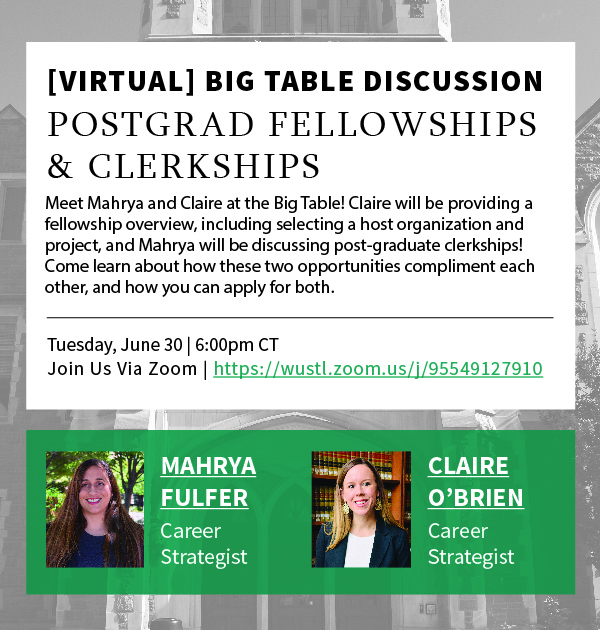
Interested in a post-grad fellowship or clerkship? Join us at 6pm CT!
Zoom link: https://wustl.zoom.us/j/95549127910
David Sokol: Firm vs. In House | 6.18 at 1pm CT
Virtual Big Table Discussions 5.12 & 5.14
Get back in the post-finals swing of things with Virtual Big Table Discussions.
Tuesday, May 12
Event: Ben Barnes “General Q&A Clerkships, Bankruptcy Practice, and Boutique Law Firms”
Time: 12:15pm CT
Zoom Link: https://wustl.zoom.us/j/96209420058
Description: Join WashULaw ’12 Alum., Ben Barnes, Senior Associate in the Dallas office at Reid Collins for a Q&A Session. Ben will also discuss topics like Clerkships, Bankruptcy Practice, and Boutique Law Firms.
Thursday, May 14
Event: Young Lawyers’ Society Panel Discussion
Time: 12:00pm CT
Zoom Link: https://wustl.zoom.us/j/95439147347
Description: Join a panel of five YLS members, including a WashU Alum to discuss how their practice is going during this pandemic.
Event: Kevin Cole “Judicial Clerkships & Large Law Firms”
Time: 6:00pm CT
Zoom Link: https://wustl.zoom.us/j/94431891754
Description: Join WashULaw Alum. Kevin Cole, Partner at KJC Law Group, as he discusses Judicial Clerkships and Large Law Firms
Clerkship Boot Camps 5.8.20
Wanting to learn more about clerkships? Have questions about how to apply? There is an informative boot camp for you!
Clerkship Boot Camps begin this Friday morning and are broken down by class. Check your email for specific Zoom links and times.
May the 4th Make History
May 4, 2020 marks the first time in U.S. history that the U.S. Supreme Court will allow those outside of the court to hear arguments in real time. All nine justices will hold court remotely.
This has the justice system and political science fans buzzing with excitement since cameras and same-day audio of proceedings was banned before this.
The 10 cases being heard will take place over a two-week span. Tune in to witness history in the making from the comfort of your own home.
2L OSCAR Bootcamp Today 2.5.20
Come to ABHall 204 at noon today, February 5th, to take part in the 2L OSCAR Bootcamp.
Be sure to bring your laptop so you can navigate OSCAR in real time.
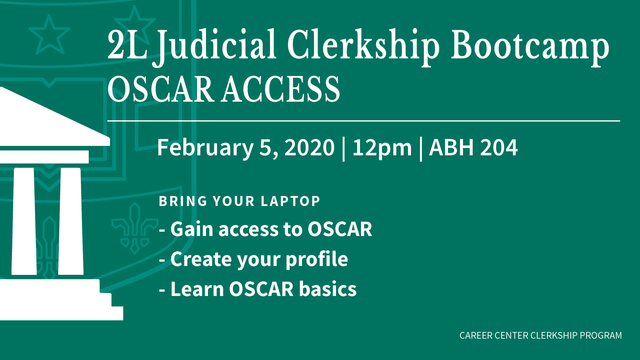
Also, refer to this article on OSCAR to better understand this overall process.
Want to Clerk? Mark your Calendar for 2.5.20

On February 5th, plan to attend the 2L OSCAR Bootcamp. The informative event will answer practical, frequently asked questions including:
- How to gain access to OSCAR
- How to create an OSCAR profile
- How to navigate OSCAR
Interested in learning more about OSCAR before the bootcamp? You can read this in-depth explanation to familiarize yourself.
2020 Clerkship Hiring Season Update

For the Class of 2021:
Starting February 5th, students will gain access to OSCAR to register for an account, upload documents, search for clerkship positions, and build online applications. The OSCAR system will store these applications and release them to judges on June 15, 2020 at 12 pm. The Career Center will host an OSCAR Bootcamp on February 5 to assist 2Ls with building their OSCAR accounts. In the meantime, make an appointment with the Career Center to discuss application materials and the process so you are prepared.
At a Glance:
- OSCAR access in February
- February 5th Bootcamp in CC for help
Delaware Court of Chancery open for 2021-2022
If you are interested in an opportunity that will make you a better corporate or in-house attorney, this clerkship is for you! This court is the leading court for resolving disputes involving the internal affairs of Delaware corporations and other business entities. This is a non-jury trial court that exclusively handles civil cases. The unique docket is due in part to the fact that Delaware is the legal home to more than 1.3 million entities, accounting for approximately two-thirds of all Fortune 500 companies and half of all public corporations in the US.
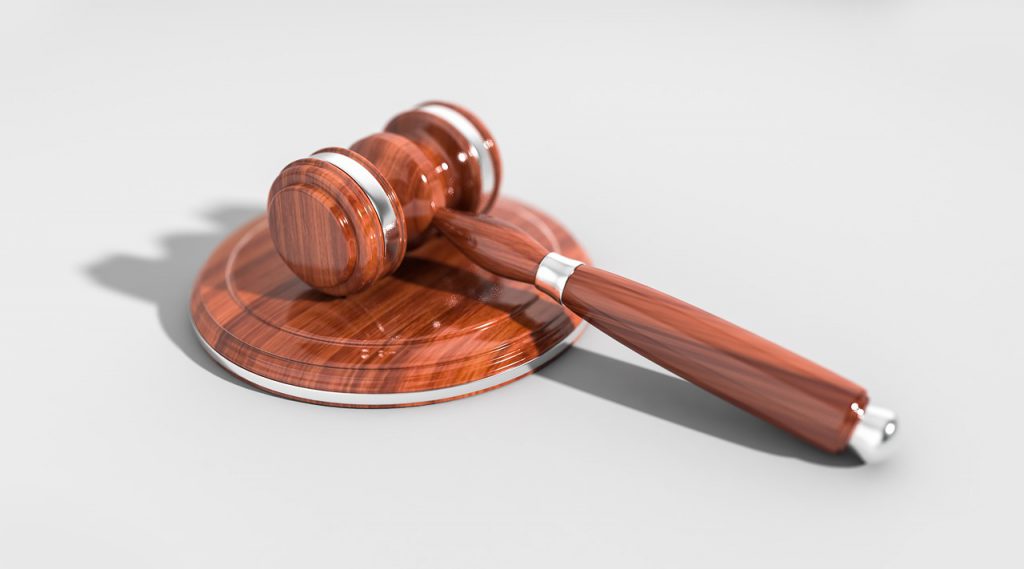
The Court of Chancery hires up to eight clerks, and applications are due February 14, 2020. The clerkships typically last for one or two years.
You may continue to supplement your materials and the application encourages you to apply early. The application can be found here. Please come and chat with Mahrya in the Career Center if you have any further questions.
Judicial Externship [L.A.] Apply Starting 12.2.19

The Court of Appeal in Los Angeles offers first and second-year law students an opportunity to gain an understanding of the appellate decision-making process by participating in the work of a judicial chambers. Performed under the supervision of justices and research attorneys, the work includes reviewing appellate briefs and writ petitions, examining trial court records, conducting legal research, and drafting opinions and memoranda. Externs also participate in writ conferences, attend conferences before and after oral argument, and observe argument sessions.
A weekly seminar component – taught by justices, research attorneys, and appellate practitioners – provides instruction on the role of intermediate appellate courts in the development of the law, the principal aspects of the appellate process, the influence of oral argument in reaching a decision, and the post-argument decision-making process. The seminar component also instructs externs on effective opinion-writing techniques and provides constructive feedback on their work product during opinion-writing workshops.
In order to provide a context for understanding issues raised on appeal or by writ, externs also observe trial court proceedings and discuss the trial court decision-finding process with judges conducting those proceedings. Externs may also have the opportunity to observe oral argument before the Supreme Court. Post-argument discussions explore the procedural similarities and differences between the Supreme Court and the intermediate appellate courts.
Students interested in the program are invited to submit applications between December 2, 2019 and February 14, 2020. Applications received before December 2, 2019 will not be considered. Applications must include a cover letter, resume, legal writing sample, and, if available, law school transcript. Shortly after receipt of completed application packets, the applications will be electronically circulated to the 32 justices on the court for their consideration. The justices will make externship selections based upon a review of the applications and telephonic or in-person interviews.
Law students who wish to be considered for the summer program must electronically submit applications (including a cover letter, resume, writing sample, and transcript if available) in one pdf format document to: Brandi.Wahlstrom@jud.ca.gov (213-830-7315).
Did You Miss the 1L Clerkship Orientation?

You’re in luck! take a moment to listen to the tips and advice from Mahrya Fulfer and member s of the Clerkship Committee HERE. Still have questions about the process? Make an appointment with the Career Center TODAY!
Clerkship Interview Set? What’s Next?

- Tell the Career Center about your interview. We may have insights about the judge or helpful contacts to share with you. Stop by the office or email Mahrya to share the news! We can facilitate setting up mock interviews with the clerkship committee or with alumni who have clerked with that particular judge. You should practice your answers to the questions out loud so that you feel confident in the interview.
- Let your recommenders and jcrecommendations@wulaw.wustl.edu know about your interview. First, they will be terribly excited for you, and second it will give them a chance to prepare in the event the judge reaches out to them. If anything has changed since the last time you spoke, make sure you send them your updated materials. They may have tips for the interview as well.
- Research, research, research the Judge. You should conduct research on the judge, but also look into their current clerks as well. You should NOT contact the current clerks directly, even if they are WashULaw alumni, as they will likely be part of the interview process. You can find information about the Judge’s chambers in the Leadership Library.
The Clerkship Interview – Common Questions
- Why do you want to Clerk?
Carefully think about this question and use it to your advantage. While you may be tempted to talk about how this will improve your research and writing (it will), think deeper, and develop a sincere and thoughtful response.
- Why do you want to Clerk in my chambers/at this Court?
Consider the geographic location, the level of court (i.e., state vs federal), the type of court (i.e., trial v. appellate), and the type of judge (e.g., Magistrate, Senior, Bankruptcy, etc.). This is where research becomes important. Your answer should reflect specific knowledge of the judge/court. Make sure to highlight your unique qualifications for that particular court. If you want to be a trial attorney, mention that. If you have taken Bankruptcy courses, an interview with a Bankruptcy Judge is the time to mention this fact!
- Why did you decide to attend law school? Why WashULaw in particular?
You have likely been asked this question in various forms throughout your interviewing process (How do you like law school? Are you enjoying your law school experience? etc). Keep your answer positive. Now is not the time to vent any frustrations, as it will only serve to showcase yourself in a negative light.
- What is your favorite opinion of mine?
- What is the biggest issue facing the court system today?
- What is your preferred theory of the law (originalism, pragmatism, etc.)
- What do you consider to be your greatest strengths and weaknesses?
- What qualities do you have that might make you a valuable law clerk?
- What are your long term career goals? Short term?
- What type of law interests you most?
- What is the biggest challenge you have faced in your life?
- What do you do to keep abreast of the latest development in the law?
- What other judges have you applied to and why?
- Who is your favorite Supreme Court Justice and why (HINT- don’t go with your political views!)
- What is your least/most favorite Supreme Court decision and why? How would you have decided the case differently?
- Why are you the best candidate for this position? Why should I hire you?
- How will you improve our chambers?
- Describe the work you have done for your law journal.
- What would your classmates say about you?
- Do you prefer to work with others or independently?
- Tell me about a time that you had to juggle competing deadlines and priorities.
- If you and I disagree about a certain issue, would you have any problems drafting an opinion incorporating a viewpoint that you don’t agree with?
- How would you describe yourself?
- How would you describe your work style?
- Why did you choose your writing sample topic?
- What is the worst job you have ever had?
- Are you ok with not being involved politically while clerking?
- Are you comfortable with not being able to discuss your work with your family or friends or anyone who may inquire?
- Is there a specific body of Supreme Court cases that you particularly like or dislike?
- What do you think is the most interesting case before the US Supreme Court this term, and how do you think it should be decided?
- Tell me the most interesting assignment during your summer at XXXXX.
- What book are you reading right now?
- What Netflix series are you currently watching?
- How would your parents describe you?
- Tell me something about you that isn’t on your resume?
- What do you do in your free time?
- What achievement are you most proud of?
- How would you approach researching a legal topic you knew nothing about?
- What is your research and/or writing style or method?
Other Ways to Prepare:
Know what is going on in the world and that particular location.
When you get to the city in which you are interviewing, grab a newspaper and see what is happening in that location. You also want to showcase that you are a well-rounded individual, so make sure you are relatively up on national/world events. Keep an eye on legal issues. You don’t want to walk into an interview unaware that the Supreme Court issued a major ruling the previous day.
Study your Resume
Go through your resume line by line and make sure that you have a story or example for every listed experience. Be able to discuss in depth several large legal projects you have completed (which may include projects for clinics, externships and research assistant positions). With respect to these projects, be prepared to discuss the legal issues, how you approached the problem, any challenges you faced, how you overcame those challenges and what happened with the final drafted product. Know your skills and interests and expect to discuss them. If you have a thesis or note or any articles that have been published, make sure you can have a brief discussion about the topics.
Study your Writing Sample
Know your writing sample backwards and forwards. You should be able to comment about the best arguments in support of your position, but be ready to argue it both ways and for the judge to ask about your arguments and conclusions. Spend some time reacquainting yourself with your writing and the cases that you cited.
Study your Transcript
Judges had favorite classes in law school. Some still serve as adjunct professors at law schools (you’ll find that through your research!). Know the classes you took and the professors who taught them. Think about which class was your favorite and least favorite and be able to discuss them. Do not be tempted to disparage the professor as a method to explain a not-so favorable grade. We can help you prepare an answer to explain any grades or class choices.
Successful Summer Tip #9 – Research Judges Prior to Your Clerkship Interview

Prior to Interviewing with a judge, research is key!
Biographical Information:
A good place to start researching the judge and his chambers is the Leadership Connect database. If you are interviewing with a relatively new federal judge, you may want to look up the Senate Judiciary Committee nomination materials, which can be found at http://www.judiciary.senate.gov/nominations/judicial. Never underestimate the power of a Google search. Search for speeches, videos or scholarly articles written by the judge, and any news about the judge. If the judge is overseeing a high profile case you will want to know about it. You will also want to know your judge’s particular career path. Judges won’t be on Linkedin, but their prior clerks may have that job title listed. Search for them so you can be prepared.
Opinions and Dissents/Concurrences
You want to approach the interview with a familiarity regarding how the judge approaches the law and opinion-writing. Speaking with individuals who have clerked for that judge or who have served as judicial clerks in general is a good way to begin preparing, but you will want to spend time reviewing the judge’s opinions and dissents. Depending on the length of the judge’s tenure, you may have countless opinions to review or only a handful. Utilize Lexis and/or Westlaw to pull relevant docs (a step by step example is included below), however, you will likely pull up numerous options and you may have a limited amount of time to read them.
You should check the “Noteworthy Opinions” section in the Almanac of the Federal Judiciary (available on Westlaw -AFJ); not every judge will have a “noteworthy opinion” listed, but it is a good starting place. If you cannot find a case that seems to be particularly notable, you should still review some cases form the most recent term or within the past year. Pick a mixture of criminal and civil. Review them carefully; you should be able to identify which is your favorite and least favorite and be able to discuss why. Steer clear of hot-button political views and gear yourself more towards the legal analysis and less towards the issue.
If you are interviewing with an appellate judge, also review a few of the judge’s dissents and concurrences, as those are often the easiest places to truly hear the judge’s voice, free from the constraints that often come from reaching consensus.
Research the court
Before you go into an interview, you should research the court in addition to the judge. This is particularly important if you are interviewing with a court of limited jurisdiction (Federal Circuit, U.S. Tax Court, Court of Federal Claims, U.S. Court of International Trade, etc.), as you will want to understand the nature and scope of the disputes before the court. But even if you are interviewing with a court of general jurisdiction, it is helpful to know a bit about the court. If it’s an appellate court, is it a court of last resort? Is it appeal by right or by leave? If it’s a trial court, does the judge have a particular docket (criminal, family, civil)? Are the judges elected or appointed? If you’re interviewing with an Administrative Law Judge, you should understand the mission of the department or agency.
Research the Location
If you are interviewing in a location where you do not already have strong ties, make sure you have done some research on the city and area of the country where you would be clerking. Read the newspaper for that location to find what issues are prevalent. Judges want to know you’ll be comfortable living and working in their city, and a good way to reflect your genuine interest is to know what’s going on in that community. You don’t have to convince your judge that Las Cruces, New Mexico or whatever city you are interviewing in, is your dream location, but that you are aware of what life will be like in that city so you can genuinely convey why you would love to live there.
Nuts & Bolts of Research – Examples
Searching in Bloomberg Law for Judge Kim Gibson, U.S. District Court for the Western District of Pennsylvania:
- Type Judge’s name into the main search bar on Bloomberg Law. Click on the “People” result for him.
- That brings you to this page: https://www.bloomberglaw.com/people/5947375, which provides the following:
- Basic biographical information;
- Reported holdings (Judge Gibson has none);
- Links to Docket Sheets (on the bottom right) (note – you will need to click “Update Docket” to access current day docket sheets);
- New stories mentioning the judge (recent/current cases include bullying, child pornography, age discrimination, insurance bad faith, filing false tax returns).
Searching for Reported Decisions in Westlaw for Judge Kim Gibson, U.S. District Court for the Western District of Pennsylvania:
- Click Cases;
- Click Federal District Courts (and then Pennsylvania);
- Click Advanced Search using his name in the Judge field (I typed: kim /2 Gibson);
- Then to make sure they were cases he decided, I used the JUDGE filter on the left, and also filtered for Reported cases;
- From here, you can see he DOES actually have 73 Reported Decisions, with the most recent one being April 26, 2019. https://1.next.westlaw.com/Search/Results.html?query=advanced%3A%20JU(kim%20%2F2%20gibson)&jurisdiction=DCTPA&contentType=CASE&querySubmissionGuid=i0ad6ad3b0000016b8fc4e1a89a898258&categoryPageUrl=Home%2FCases%2FFederalDistrictCourtCases%2FPennsylvaniaFederalDistrictCourtCases&searchId=i0ad6ad3b0000016b8fc14dcbc88f5d0b&collectionSet=w_cs_dctpa&transitionType=ListViewType&contextData=(sc.Search)
Searching for WashULaw connections in Westlaw using the West Legal Directory:
- Click West Legal Directory;
- Advanced Search for: (“washington university” % “george washington”) – providing these results: https://www.westlaw.com/SharedLink/b4c0c24329854a5fb0bff7324e7e7707?VR=3.0&RS=cblt1.0
- Use filters on the left to sort for just Wash U, which leaves 5,993 results: https://www.westlaw.com/SharedLink/3408fdb801f24413b46cf4d6cdf01ff7?VR=3.0&RS=cblt1.0
4. Next “Search Within Results” for the judge’s name (kim /2 gibson), which produces 0 results:
5. To double-check the Westlaw results, go back to the West Legal Directory and do an advance search for his name: (kim /3 gibson). This produces 18 results: https://www.westlaw.com/SharedLink/5427796de83a4ff6b589a6b4aae95129?VR=3.0&RS=cblt1.0 None of the 18 had WashU as a Law School.
Searching for additional information in Westlaw using the Almanac of the Federal Judiciary:
- Click Almanac of the Federal Judiciary
- In the search bar, search (Kim /2 Gibson)
The top result contains a positive but short discussion about the judge: https://1.next.westlaw.com/Search/Results.html?query=advanced%3A%20kim%20%2F2%20gibson&saveJuris=False&contentType=LEGAL-DIRECTORIES&querySubmissionGuid=i0ad6ad3b0000016b8ff63accc88f915d&startIndex=1&categoryPageUrl=Home%2FDirectories%2FAlmanacoftheFederalJudiciary&searchId=i0ad6ad3b0000016b8ff63accc88f915d&kmSearchIdRequested=False&simpleSearch=False&isAdvancedSearchTemplatePage=False&skipSpellCheck=False&isTrDiscoverSearch=False&thesaurusSearch=False&thesaurusTermsApplied=False&ancillaryChargesAccepted=False&proviewEligible=False&eventingTypeOfSearch=BOL&transitionType=Search&contextData=%28sc.Search%29
The Ins and Outs of Clerkship Interview Preparation

You’ve received a call to interview – congratulations! Below are a few tips to help you prepare for the interview:
- Judges generally hire on a rolling basis, which means if they like the first person they interview, they may cancel the other interviews. Take advantage and also show your interest by scheduling the earliest available interview appointment. If possible, interview in person. This will give you the best opportunity to make a strong impression and convey your strong interest. You should not wait to select an interview in the hopes of getting an offer to interview with a different judge.
- It is typically expected that if you are extended an offer you will accept. You should not utilize an offer from one judge to push an offer from a different judge. If after an interview you feel like that judge may not be the right fit, contact Mahrya in the Career Center and we will find a tactful way to withdraw your application from consideration immediately.
- Bailiffs, Court Reporters, Law Clerks and Judge’s Assistants typically know their judge extremely well and may have worked with them for a very long time. Their impression of you can be very important in the decision-making process. In every interaction with them – via email, phone or in person – make sure that you are conveying yourself in the best possible way.
- Arrive EARLY! Most courthouses have security and depending on the day it could be a long line to get in. Some courthouses have odd parking situations or even shuttles. If you arrive early, you can simply prepare or observe proceedings. Some courtrooms also may not allow you to bring your phone. Have a plan.
- Always bring extra copies of your materials to the interview.
- Thank you notes are highly recommended. While an email can suffice, we recommend a hand-written note for federal clerkships. It does not have to be long, a few sentences will be sufficient. Make sure that you reiterate your interest and something you spoke about in the interview. In order to make sure your notes arrive quickly, have the notes with you and take a minute right after the interview to write a personalized thank you. Make sure there are no errors in grammar or spelling. PROOFREAD your thank you note – several times. You can then drop it in a mailbox in the city where you interviewed so that the mail delivery is faster. Utilize the most professional stationary for this note. Make sure that you have everyone’s names – including the judicial assistant. After the interview, you can absolutely check back in with the judicial assistant and clarify spelling of names.
- Remember – Judges hire largely based on “fit.” The members of their chambers are similar to a small family and they want to make sure that anyone they bring in will fit in. Be prepared, but also be yourself. Federal Judges are exempt from liability under federal employment statutes, such as Title VII, so it is possible that they may ask about your personal plans.
Did You Miss The 1L Clerkship Bootcamp?

Were you unable to attend the Clerkship Bootcamp? Need a refresher? Watch the video here. If you have any questions, schedule an appointment with Mahrya Fulfer in person or virtually.
Attend: 1L Clerkship Bootcamp [5.3.19]

Join the Clerkship Committee and Mahrya Fulfer for Clerkship 101
Friday, May 3, 2019 @ 11:00am in ABH320
2020 Clerkship Applications by Mahrya Fulfer

While many judges are abiding by the rules of the new court plan, there are a few that have already begun the interview process. If you are interested in a clerkship (and you should be!), don’t wait to start sending out paper applications or to update any paper applications that you have already sent. For updates to a previous application, please make sure you are also including your writing sample, resume, and transcripts from the first packet.
Here is a sample of what an updated clerkship cover letter may include. This way, if chambers no longer has your first packet, they will have all of the materials they need. You should also be uploading all of your materials into OSCAR.
For letters of recommendation, please make sure that you are sending an email to jcrecommendations@wulaw.wustl.edu after you have sent off your paper applications. You do not have to include the judges you are applying to via OSCAR in the spreadsheet you send to JCREC. Aside from your attached spreadsheet, the email should include:
Subject: Clerkship Letters of Recommendation
Hello,
I am a year in school, I will graduate in XXXX I have submitted paper applications for the judges listed in the attached excel spread sheet. (Please attach spreadsheet for the judges to which you have applied). I have spoken to Professor 1, Professor 2, and Professor 3 who have all agreed to be my references. I have sent them a follow up email letting them know that I have sent out applications. Could you please forward their letters of rec. Additionally, can you please upload the letters of rec to OSCAR.
Best,
Student Name
After you send this email to JCREC, you should also update your recommenders that you have sent out your applications (and again thank them for agreeing to serve as your recommender). That will let them know that you have gotten the ball rolling.
Some tips:
- If you are selected for an interview, please make sure that you reach out to tell jcrecommendations@wulaw.wustl.edu as well as Mahrya mfulferpage@wustl.edu . JCREC can make sure that your letters of rec have been sent. Mahrya can help you prepare for your interview.
- If your recommender is an adjunct member of the faculty or someone outside of WashULaw, that is fine! Ask your recommender to send a word letter of recommendation to: jcrecommendations@wulaw.wustl.edu. In the email they should give permission for JCREC to utilize the document for a mail merge thus inserting the proper addresses and salutations. JCREC will take care of uploading it into Oscar as well.
- Always update Mahrya and your recommenders about any clerkship interviews and/or offers. We have a lot of alums and connections that could help you prepare!
- If your recommender has told you that they updated the letter of rec or if you have new letters, send an email to jcrecommendations@wulaw.wustl.edu letting them know that you have a new letter and that you want it sent to the attached spread sheet. And then attach the spreadsheet you want them to use.
New to OSCAR? Need a Refresher?
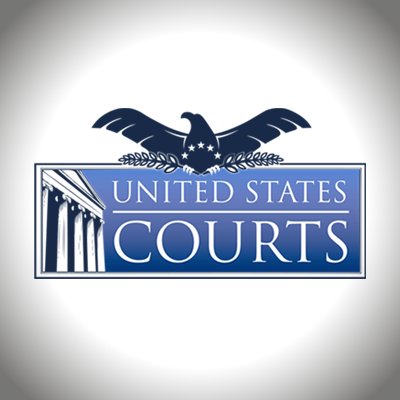
Welcome to New Applicants : The OSCAR Program Office is pleased to welcome all new applicants and assist you in your clerkship and staff attorney application process. To get started, check out the Applicant Prep Kit. You can also find upcoming training events for applicants in the Training & Resources section learn more here.
Accelerate Your Clerkship Search Ready to fnd your dream clerkship? OSCAR makes it easyto search and applyfor positions online. Take advantage of features such as saving your advanced searches so you can quicklyfind clerkships based on previouslysaved criteria without having to enter the same criteria each time. Even if a judge is not currently hiring, you can view their profile and hiring practices to learn about their hiring schedules. Learn more here.
Upcoming Webinars: Smart Break Training for Applicants The OSCAR Program Office is offering a series of training sessions for applicants to provide an overview of OSCAR. Topics will include how to manage applicant profiles, search for judicial clerkships and staff attorney positions, upload documents, and select recommenders. Register for your preferred date using the links below. Wednesday, April 3 12:00 p.m. – 1:00 p.m. ET Thursday, April 4 12:00 p.m. – 1:00 p.m. ET and Friday April 12:00p.m. – 1:00 p.m. ET
Position Announcement: U.S. Court of Appeals for the Seventh Circuit
During February, 2019, the U.S. Court of Appeals for the Seventh Circuit is accepting applications for staff law clerkships that start in August 2019 and last two years. This is a reopening of a position announcement that had previously closed.
We are also accepting applications for staff law clerkships that start in August 2020 and last two years. In accordance with the 2018 Federal Law Clerk Hiring Plan, students can build their application for 2020 positions in OSCAR starting February 6, 2019 and applications will be released to the court on June 17, 2019.
View FAQ’s HERE
At the Seventh Circuit, one of the most prestigious appeals courts in the country, staff law clerkships combine the intellectual rigor of a chambers clerkship with benefits not available to chambers clerks. Like chambers clerks, staff law clerks conduct legal research and recommend dispositions on a broad spectrum of cases subject to oral argument at the court, including some of the court’s most controversial. Because they work for the entire court, staff law clerks interact with and learn from all of the judges of the court. In addition, each week they attend private conferences at which three-judge panels deliberate and resolve cases that are not subject to oral argument. Also the Office of Staff Law Clerks is exclusively responsible for assisting the judges in resolving substantive motions that address complex questions of procedure or seek preliminary relief. Finally staff law clerks learn a wide variety of substantive and practical lawyering and writing skills through their work with the experienced supervisory staff.
Each year the court hires about nine staff law clerks from recent graduates o f the nation’s top law schools. Applicants must have excellent academic credentials and possess superior analytical, research, and writing skills. Law review o r moot court experience is preferred.
To apply, please submit a cover letter, resume, law school transcript or grade sheet, two self-edited writing samples containing fact and case analysis, and two letters of recommendation. We accept applications through OSCAR. OSCAR is the Online System for Clerkship Application and Review at https://oscar.uscourts.gov
.
On February 6, 2019, applicants may begin uploading their applications to OSCAR. Interviews will begin around July 2019, and we expect to finish extending offers about six weeks later. Applicants must update their grade sheets with final, second-year grades before we will schedule an interview.
For more information, watch the video of Chief Judge Diane Wood discussing the program at http://www.ca7.uscourts.gov/video_library/StaffAttorney_program.html, or see our FAQ’s at
http://www.ca7.uscourts.gov/clerkships/Staff_Attys/SA_faqs.pdf. No phone calls please.
The Court of Appeals is committed to equal opportunity for all applicants.
Law Clerk & Mediator in La Crosse County, WI
 Please apply on the La Crosse County website. While we are happy to answer questions concerning the position, submissions not sent through the official application cannot be considered. If you have questions about the process, the position, or about La Crosse in general, you are welcome to contact the current law clerk, Chad Post, at chad.post@wicourts.gov.
Please apply on the La Crosse County website. While we are happy to answer questions concerning the position, submissions not sent through the official application cannot be considered. If you have questions about the process, the position, or about La Crosse in general, you are welcome to contact the current law clerk, Chad Post, at chad.post@wicourts.gov.
Quick FAQ:
Q: Which judge in La Crosse will I be working for?
A: All of them! This position offers the candidate a unique opportunity to be the clerk for five elected judges and the family court commissioner.
Q: What if my mediation / arbitration experience isn’t in law, per se?
A: That’s okay! The important thing is that you have experience mediating disputes as a neutral party.
Q: What if my experience in mediation is only academic?
A: That’s okay too! During the interview process, the current law clerk will run you through a few real-world scenarios to assess your mediation skills.
Q: Do I have to pass the bar to be selected / to keep my job?
A: You’re welcome to sit for the bar if you like, but it is absolutely not required, either to get the job or to remain in the position.
Q: I’m a foreign trained LLM. Can I apply?
A: Absolutely.
——————–
Overview
La Crosse County has an opportunity for a Law Clerk to to assist the Courts in legal research and in mediating small claims settlement. Employee in this class must have specialized legal training to perform the required research. Position breaks down into 60% traditional law clerk duties, 30% mediation related tasks, and 10% special project work.
Application Instructions
Complete the on-line application and upload the following as attachments:
1. Cover Letter
2. Résumé
3. Law School Transcript
4. Writing Sample addressed to Judge Ramona Gonzalez
Applicants who do not submit the required paperwork will not be considered.
This full-time (40 hrs/wk), salaried position qualifies for our excellent benefits package!
Benefits include, but are not limited to:
•Health insurance at an affordable monthly cost to you with low deductibles and options for free services at retail clinics.
•Dental insurance with many services covered at 100%
•Life insurance with short and long-term disability.
•Wisconsin Retirement System.
•Generous paid time off benefits such as vacation and holidays.
Starting salary depends on qualifications – Minimum: $40,393. La Crosse County Respects Diversity
——————–
***** Essential Job Functions *****
This list of duties is subject to change. For a full list of duties, qualifications and requirements, including physical demands, please see the complete job description attached below. The most up-to-date job description is always available on the La Crosse County website at: http://www.co.la-crosse.wi.us/
- Reviews motions and briefs submitted by parties, offering legal opinions as requested.
- Conducts independent legal research and provides advisory opinions for the judges and court staff.
- Prepares memoranda, decisions, and orders for the judges.
- Advises judges on novel and unusual legal issues as they arise.
- Stays current on statutes and precedential case law, advising judges and court staff of critical developments affecting the operation of the court.
- Responds to letters from attorneys and pro se litigants on behalf of the judges. Maintains a record of assignments, balancing workloads from multiple judges to comply with due dates and assignment requirements.
- Assists the judges and the Clerk of Courts with other projects as required. Mediates all small claims cases in La Crosse County before trial, including all landlord/tenant disputes and eviction cases.
Training, Experience and Other Requirements
- Juris Doctorate or an L.L.M. from an accredited law school or a foreign equivalent required. Bar passage is not required.
- Legal research experience and practical experience drafting legal memorandums preferred.
- Arbitration and/or mediation experience preferred.
- Knowledge of landlord/tenant law is a plus.
- Familiarity with Wisconsin law is a plus, but is not required.
Class of 2020 Clerkship Bootcamp
If you haven’t thought about clerkships you should! Clerking is an invaluable experience that provides great training as well as mentorship. By obtaining a clerkship, you will not only be a better attorney, but you will have the skills and background to help you move throughout your professional career, whether in private practice or government and public interest work. The much anticipated date when 2Ls can login and begin to upload their materials in Oscar is quickly approaching. On February 6 from 3-5 come to Bryan Cave courtroom to hear members of the clerkship committee discuss clerkships and the nuts and bolts of applications as well as get a chance to login to Oscar and begin exploring. Bring your laptops so you can immediately get to work. Peer career mentors will be attending to help with any logistical questions.
Access Granted: OSCAR
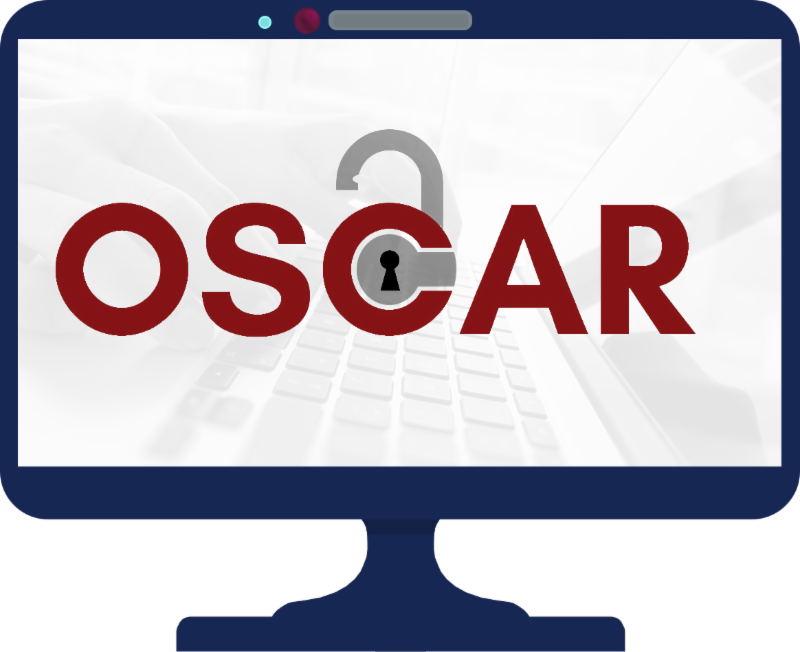
OSCAR Access Dates
Law school students graduating in 2020 will gain access to OSCAR on February 6, 2019, to register for an account, upload documents, search for clerkship positions, and build online applications. The system will store these applications and release them to judges on June 17, 2019.
Learn more about OSCAR access dates here.
Coming Soon: OSCAR Version 8
The following system enhancements will be released
on February 12, 2019:
- Provide access to students with 2 years of law school grades and joint-degree, part-time, or other alternate graduation dates that do not align with the Federal Law Clerk Hiring Plan access dates
- Opt-in or opt-out feature for non-faculty recommenders and law school administrators
Search by state in basic search and save searches
Learn more about OSCAR v8 here.
Training & Resources
Need help applying, submitting a recommendation, or assisting applicants or recommenders?
The OSCAR Program Office provides training for all users throughout the year. Stay tuned for announcements of upcoming webinars and training events for 2019.
Training at Your Own Speed
The OSCAR Program Office offers
one-on-one training to all users
Request a One-on-One Training Session with the OSCAR Program Office >
Apply: Summer 2019 Judicial Externs (Los Angeles, CA)

The Chambers of the Honorable S. James Otero, United States District Court Judge for the Central District of California, invites applications for full-time Summer 2019 externs. Principal duties include drafting legal memoranda and orders, researching substantive issues of federal and state law, and organizing files. Additional duties include providing trusted legal support to the Judge and law clerks, attending court proceedings, and interacting with court personnel. Please email a PDF of your cover letter, resume, writing sample, and law school transcript, with the subject line “Summer 2019 Extern Application,” to hannah_bogen@cacd.uscourts.gov. Applications will be reviewed on a rolling basis.
JUDICIAL INTERNSHIP OPPORTUNITY – SUMMER 2019 (Puerto Rico)
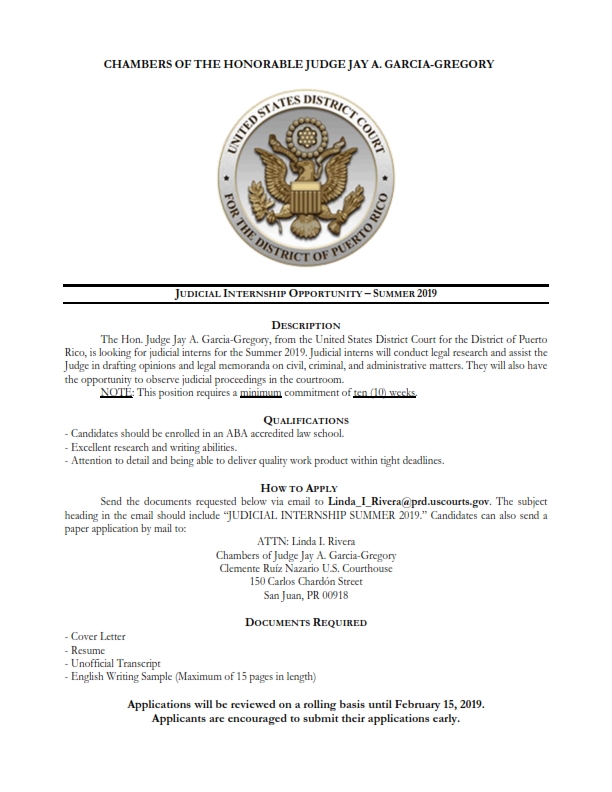
HOW TO APPLY
Send the documents requested below via email to Linda_I_Rivera@prd.uscourts.gov.
The subject heading in the email should include “JUDICIAL INTERNSHIP SUMMER 2019.”
Candidates can also send a paper application by mail to:
ATTN: Linda I. Rivera
Chambers of Judge Jay A. Garcia-Gregory
Clemente Ruíz Nazario U.S. Courthouse
150 Carlos Chardón Street
San Juan, PR 00918
DOCUMENTS REQUIRED
– Cover Letter
– Resume
– Unofficial Transcript
– English Writing Sample (Maximum of 15 pages in length)
Applications will be reviewed on a rolling basis until February 15, 2019.
New Appointments for the Judiciary Means New Opportunities

There are many new appointments for the Judiciary available and you should apply.
Search newly appointed judges HERE.
Search all Judiciary jobs HERE.
Schedule an appointment with the Career Center for more information.
How Do I…Update My Application Documents on OSCAR?
How Do I…Update My Application Documents?
by OSCAR Admin | Read comments
As summer comes to an end, you may need to update your profile and applications to reflect a growth in skills and experience, or grades from the previous semester. To update your resume, cover letters, or grades on finalized applications, follow the instructions below.
Please Note: Any changes to your work experience, prior judicial experience, education, contact information, etc. should also be made within your My Profile tab. Information from your profile is automatically transferred to your existing applications, and hiring judges and staff attorney offices can perform searches on criteria in your profile, so it is important that all information is kept up to date.
Update Resume or Cover Letter
The best way to update your resume or cover letters is to upload new files. To do so:
- Go to the My Documents
- Click the Add New
- Enter a unique document label and select the document type, then click Upload.
Note: OSCAR has a maximum limit for how many resumes and cover letters you can have uploaded at a time, so you may need to delete one of the old to make room for the new.
Update Grade Sheets
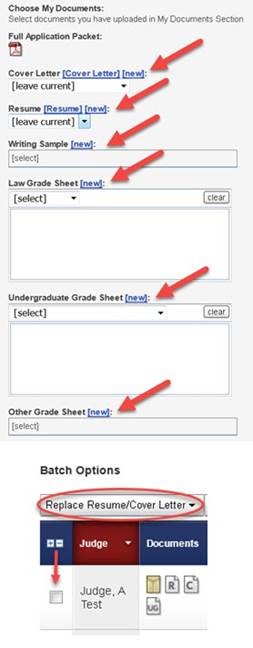
To update your grade sheets:
- Go to the My Documents
- Find your grade sheet, then click on the name to open it and access the editable fields.
- Before you make any edits, you must update the Document Labelto a new name (we recommend using a title and date, for example, “Grade Sheet_August 2017”).
- Make your changes, then click Save and Upload.
Update Applications
To update your existing application(s) with a new resume, grade sheet, writing sample, or cover letter:
- Go to the My Applications
- Locate the application you want to update, then click Edit.
- Find the relevant section, remove the old document, and select the new.
- When you are done, scroll down and click the Update Application
- Repeat this process for each application you wish to update.
Please Note: If you wish to replace your resume or cover letter for multiple applications at one time, there is a convenient batch option to do so. Within the My Applications tab, scroll down to Batch Options, check the box to select the relevant application(s),and then click Replace Resume/Cover Letter to select the new documents you want to update your application with. There is no batch option to upload new grade sheets to multiple existing applications, so you must go into each existing application and select the updated grade sheet as outlined above.
More Information
For more information, see the tip sheets titled Upload Application Documents, Create an Applicant Grade Sheet, and Update Your Profile located under “Help” when logged into your account.
Further information helpful to applicants can be found within the Application Process Overview and the Applicant Prep Kit.
Resources for Researching Judges

RESOURCES FOR RESEARCHING JUDGES
Whether you are preparing for an upcoming interview or deciding where you should apply, here are some tips for researching the judiciary.
► OSCAR (Online System for Clerkship Application and Review) https://oscar.uscourts.gov. OSCAR is a single, centralized resource for federal clerkship information. It includes a searchable database of federal law clerk hiring information, including the length of the clerkship term, the application period, the preferred method of application, and the required application materials. Judges can also post that their positions are filled or indicate that they are not hiring clerks. There is also general information about clerkship duties, salary, and benefits under the “Resources” tab. In addition, your OSCAR account allows you to save your searches, receive email updates, and apply to participating judges online.
Remember that this is a voluntary system, and some judges may choose not to participate. Approximately two-thirds of the judges have created accounts and more join each year. If a judge has no information listed anywhere in the system, come and chat with members of the Career Center. We can help navigate next steps. Additionally, if you notice a judge that has no positions or has filled them a long time ago and hasn’t given an explicit plan for future hiring, you may wish to investigate further into whether that judge has only career clerks or has any plans to hire.
► Leadership Connect: This is the online version of the Judicial Yellow Book. It contains biographical profiles and contact information for more than 3,500 federal and state judges, including education and previous experience. Staff information, when provided by chambers, includes the names of law clerks and the law schools they attended. WashU Law has a subscription accessible through the library website.
► Federal Judicial Center: www.fjc.gov. You can find biographical information on all past and present federal judges, court histories, educational materials, and links to other legal resources. After selecting “Biographical Directory of Federal Judges, 1789-present,” then “Diversity on the Bench,” you can search for judges based on the characteristics of gender or ethnicity.
► Federal Judiciary: www.uscourts.gov/FederalCourts.aspx. On this website, there is information about and links to federal courts. You can also view the online version of The Third Branch at www.uscourts.gov, the federal judiciary’s newsletter. In the “Judicial Milestones” section of the newsletter, you can look for nominations, confirmations, and other status changes.
► Senate Nominations: www.senate.gov/reference/Nominations/Index.htm. You can find the most up- to-date listings of recent nominations and confirmations, judicial and others.
► Senate Judiciary Committee: http://judiciary.senate.gov. The Nominations section includes information about judicial nominees, including their detailed questionnaire, as well as hearing dates, and votes.
► DOJ Office of Legal Policy: www.usdoj.gov/olp. The OLP site provides tables and statistics on nominations, as well as background information on judicial nominees.
► National Center for State Courts: www.ncsc.org/Information-and-Resources.aspx. This website links to numerous state and international court sites.
► The Guide to State Judicial Clerkship Procedures: http://forms.vermontlaw.edu/career/guides.
Produced by the Vermont Law School Career Services Office, this Guide provides information on
clerkship opportunities in all 50 states, the District of Columbia, Guam, and Puerto Rico. Please see the Vermont Law School website for information about subscriptions.
► LEXIS®–NEXIS® and WESTLAW®: www.lexisnexis.com and www.westlaw.com. Reading a judge’s opinions and news articles can give you insight into the judge’s thinking and can provide valuable background for the interview. Lexis also has Courtlink, a new feature for researching the caseload of the circuit and district courts, several state courts, and individual district court judges. The AFJ database in WestLaw also reports on caseloads for the federal judges.
Have You Secured a Clerkship?
At the request of judges, the OSCAR Program Office would like to offer a friendly reminder. Please remind your students to withdraw their applications when they accept a job offer or become unavailable. This will ensure judges and staff attorney offices can make the best use of their time when reviewing applications and setting up interviews.
Applicants can withdraw applications quickly and easily in one of two ways when logged into their OSCAR accounts.
1. Update Account Status to “Unavailable”
- Under My Profile in the main menu, select My Account.
- Scroll down to the “I am unavailable” field and select Yes.
- You will be prompted to a) enter a reason for your unavailability and b) specify the period of time you will be unavailable. Click Update to complete.
- OSCAR will display a warning message. Click OK to accept.
- All current outstanding applications will automatically be withdrawn.
2. Withdraw Indiviudal Applications
- Under My Applications in the main menu, select Clerkship Applications or Staff Attorney Applications.
- Locate the application(s) and click the Withdraw button in the Options column on the right.
- OSCAR will display a warning message. Click OK to withdraw the application.
- The withdrawn icon will be visible in the Application Status column of your applications.
If you have any questions, please contact the OSCAR Program Office at 866-666-2120, Monday through Friday, 8 AM – 5 PM, or email oscar-support@ao.uscourts.gov
Clerkships… Get Ahead Of The Game!

Bookmark Senate Nominations Website
Current listings of recent judicial nominations and confirmations. Click on “civilian nominations” to look through pending or confirmed. Applying for judges that have not been confirmed yet can put you ahead of your competition!
Also, read this helpful article about why New Judges need Clerks too!
Applying to Judges on the Hiring Plan (updated as information comes in)
Those of you who attended our clerkship events this spring heard about the new hiring plan that some federal judges are choosing to adopt. Some judges will not be hiring until the summer after your 2L year, but we know that many judges will not be following the new plan. Now that we have had more time to contact judges and discuss whether they will be adopting the plan this summer, we wanted to pass along our findings and encourage you to wait to apply to judges who are on the plan. Specifically, those of you applying this summer can postpone applying to the DC Circuit, the First Circuit, the Second Circuit (judges based in New York City), the Third Circuit, and the Seventh Circuit (judges based in Chicago). You should plan to apply broadly, otherwise.
Judges Following the Plan
Judge Roger Wollman – U.S. Court of Appeals for the 8th Circuit (Sioux Falls, SD)

